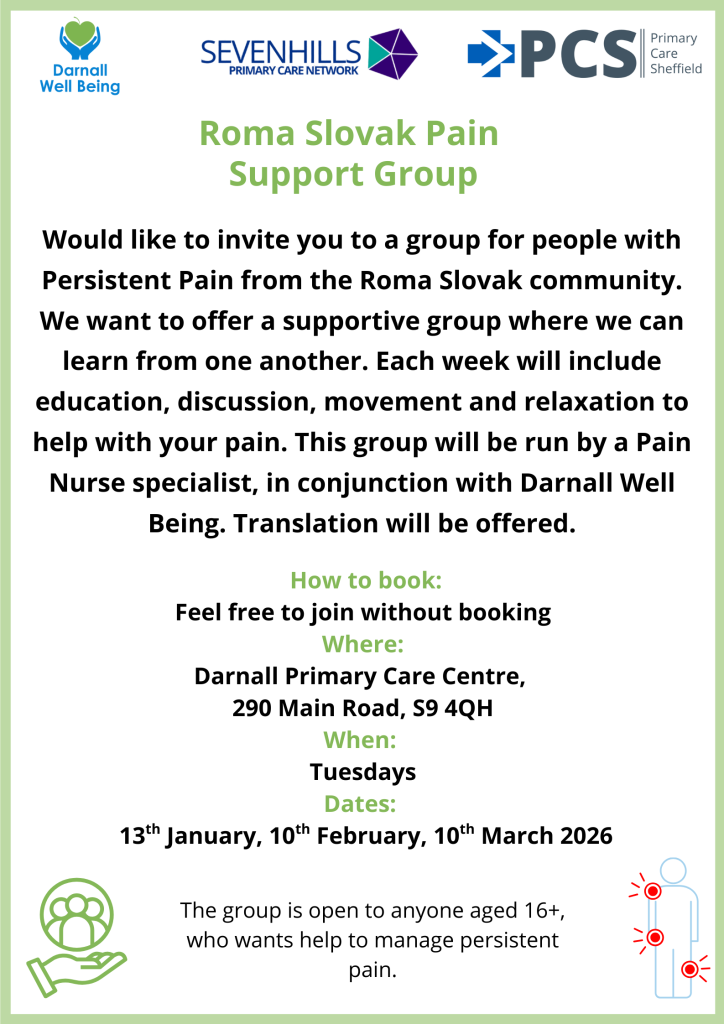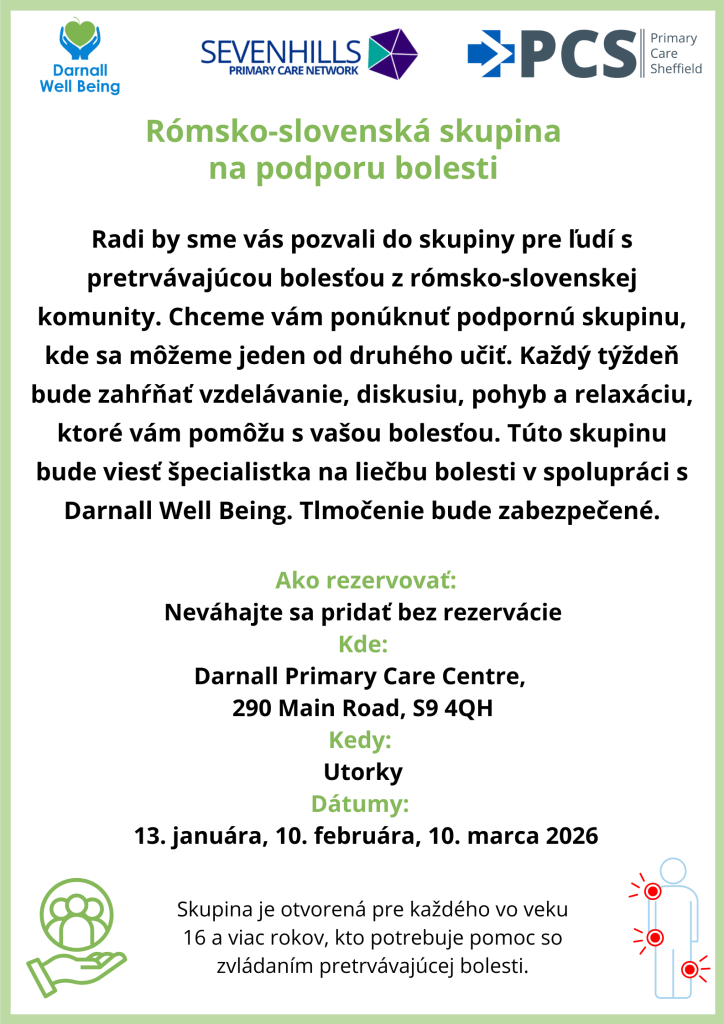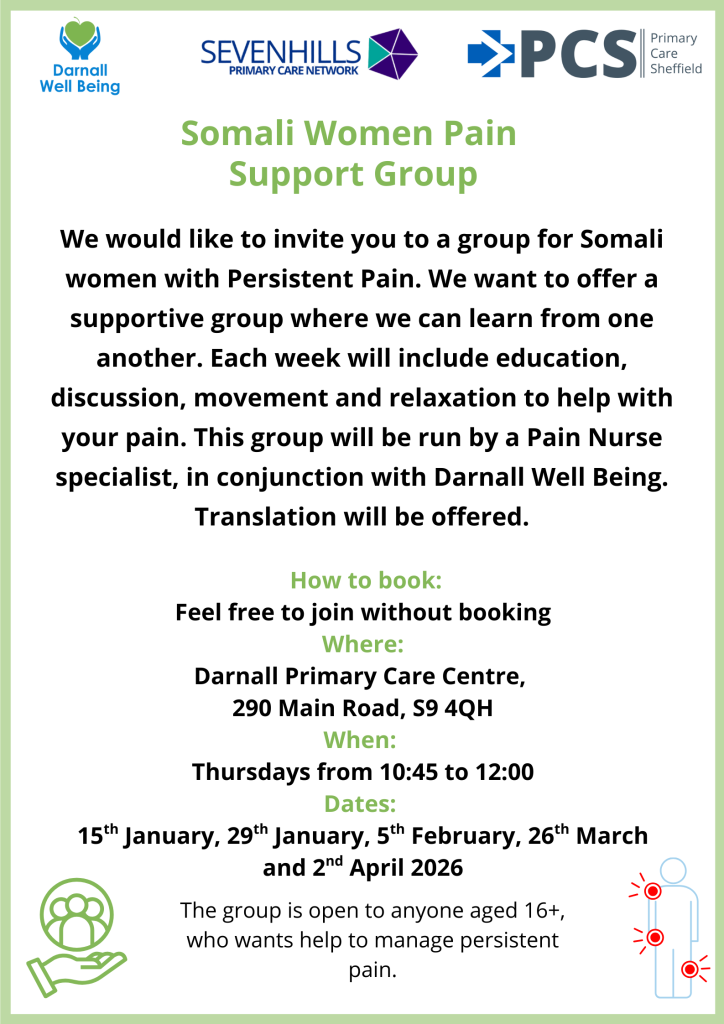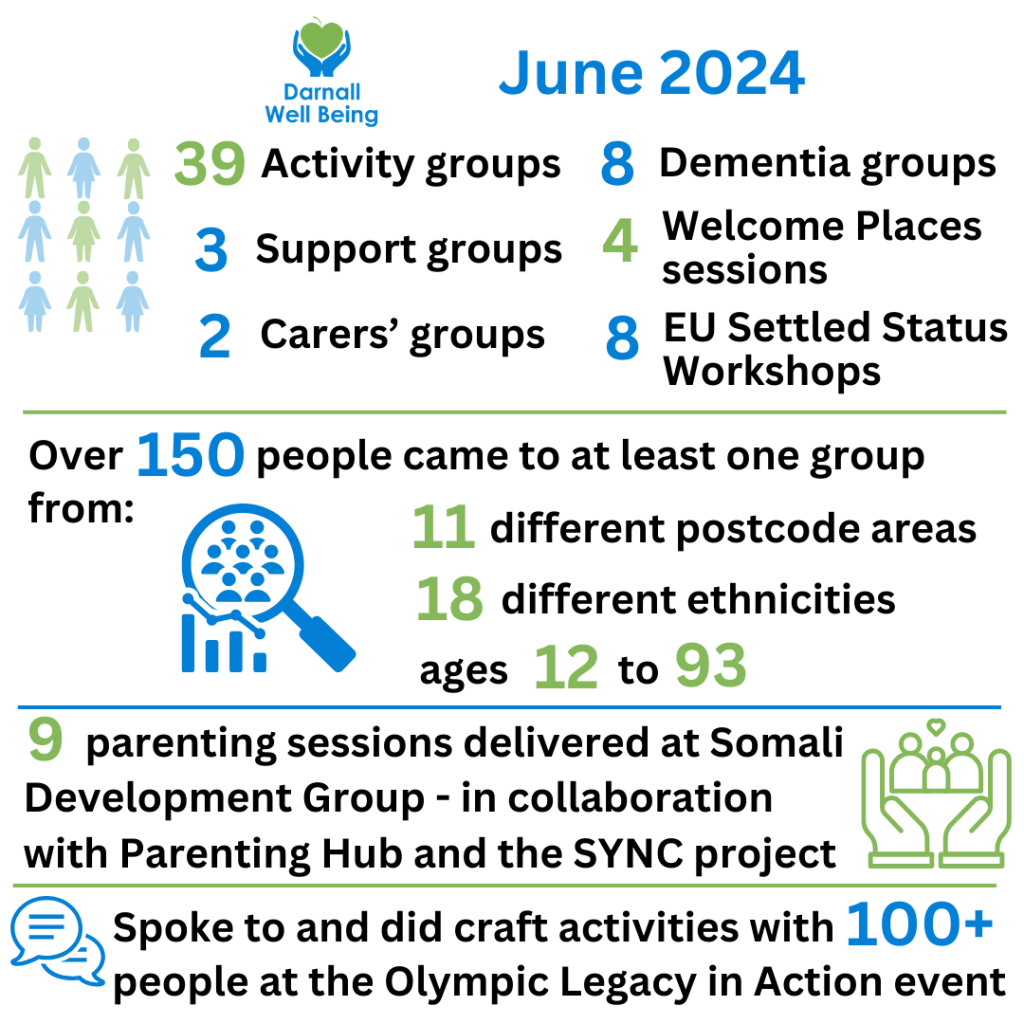
Our June 2024
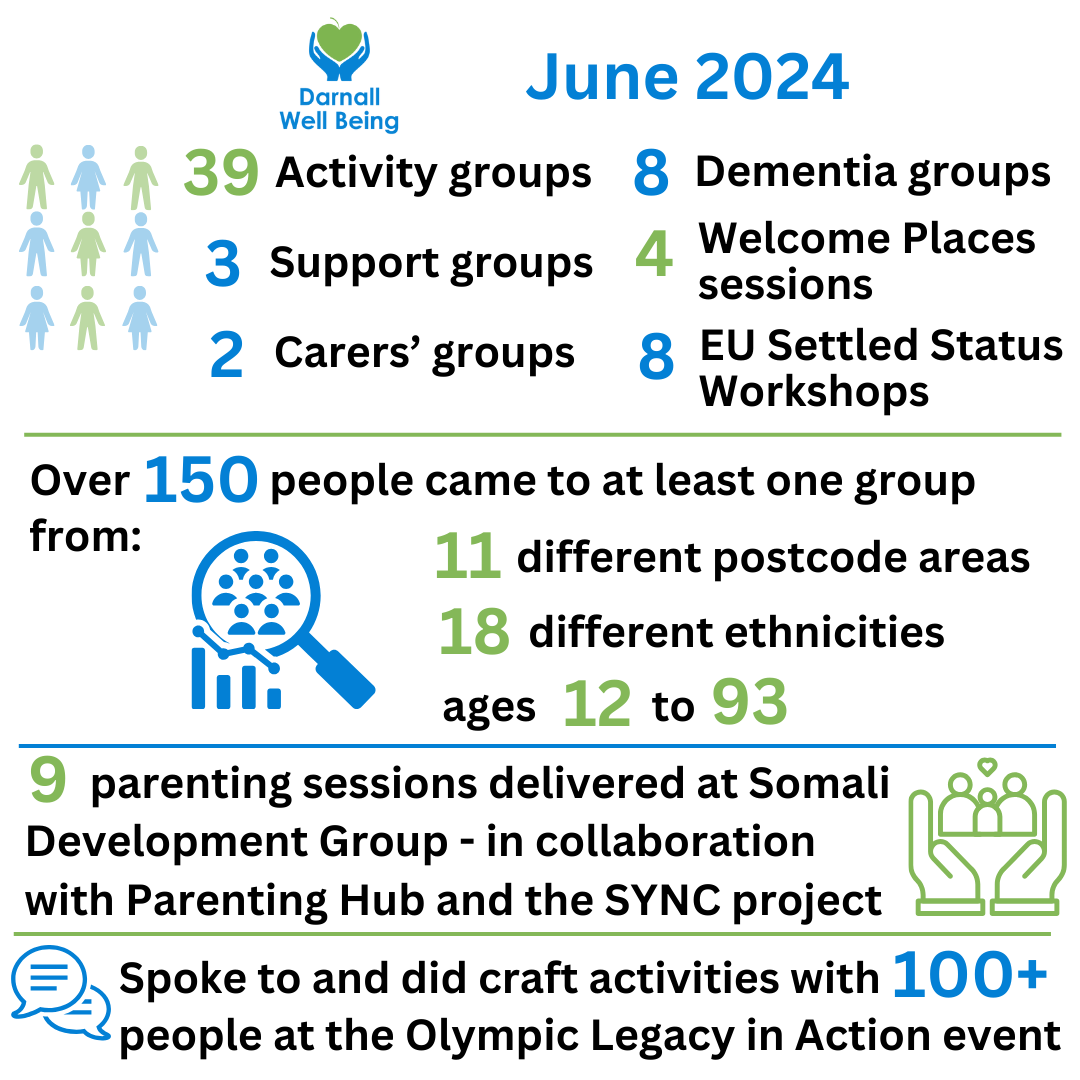



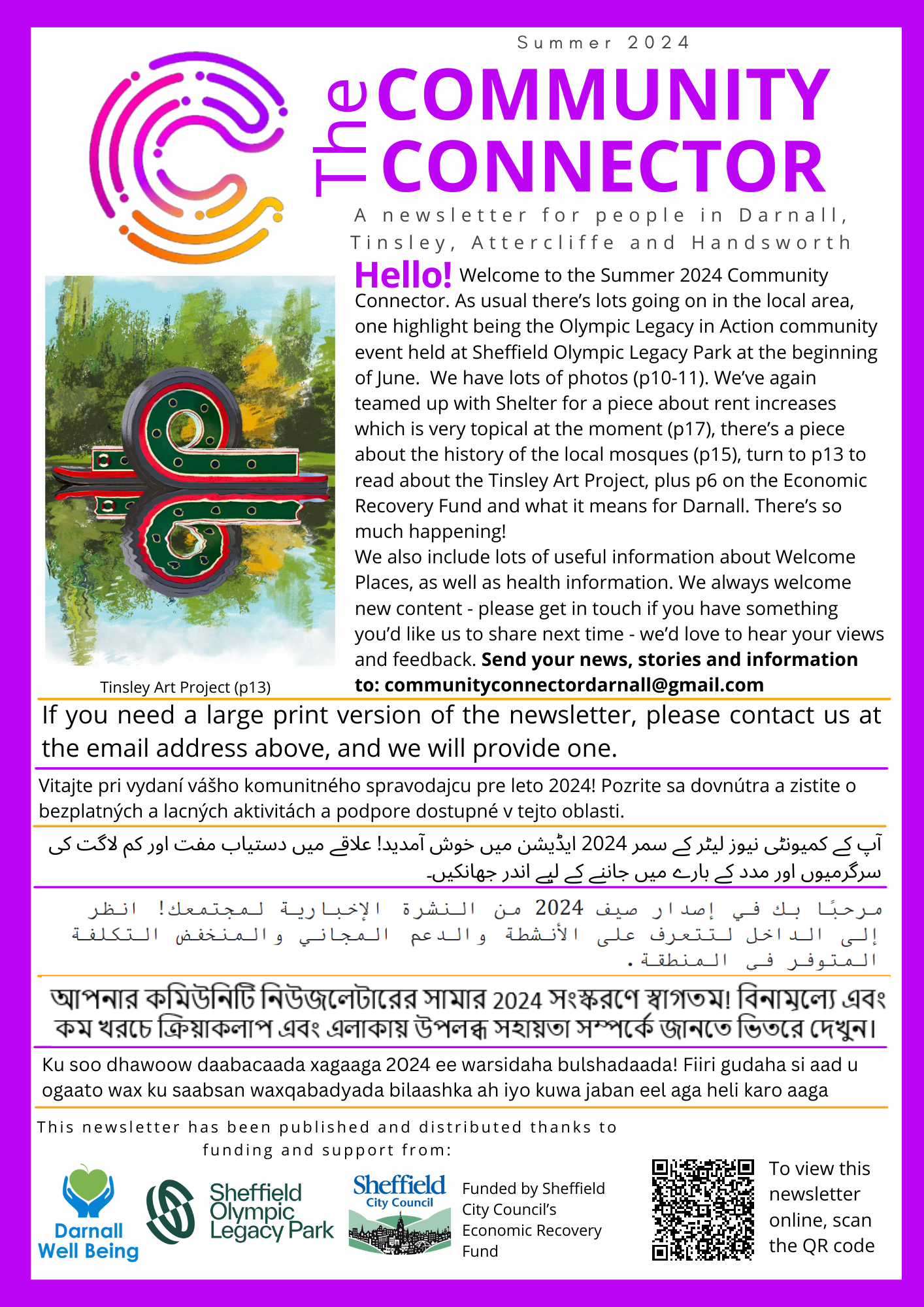
Read all about it! The latest edition of the Community Connector newsletter is out in print now. Working with Sheffield Olympic Legacy Park, Sheffield City Council’s East Local Area Committee, Tinsley Forum, St Alban’s House Christian Community and local resident Shabir Aziz, we have put together a newsletter packed full of information, support and activities around the local area. There’s also an update on the Economic Recovery Fund project in Darnall.
Printed copies of the newsletter will be available to pick up in public venues around the local area, or you can read it online here:
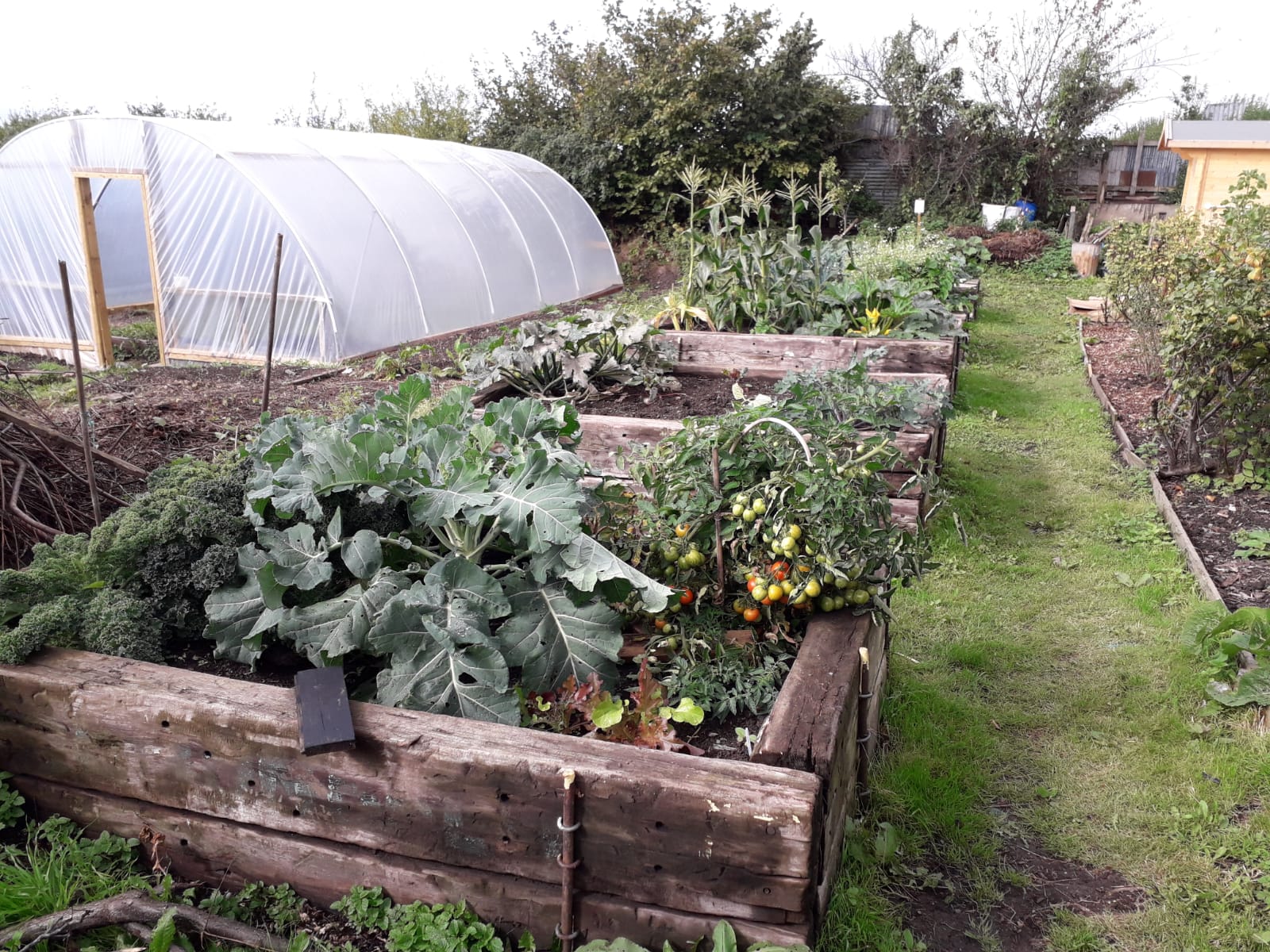
Our partner organisation Darnall Allotment Project has been announced as one of 100 winners nationwide of The Nature Hubs Fund, a new initiative that aims to widen community access to green spaces. Hubbub and Starbucks received over 600 submissions for funding when they announced the Nature Hubs grant applications were open for applicants in November 2023.

The grants, awarded by environmental charity Hubbub and funded by Starbucks, have been allocated to community groups and projects that will increase local access to green space, upskill communities, bring people together in nature and / or build climate resilience. In total, over £560,000 in grants is being awarded to 100 Nature Hubs projects across Great Britain with the aim of bringing nature closer to people and people closer to nature.
Awarded £5,000, Darnall Allotment Project will use the funding to deliver their Grow Together sessions and improve the allotment.
Sarah Emberson at Darnall Allotment Project said: “Creating, maintaining and encouraging involvement in green spaces within our local community is so important, not only for our mental and physical wellbeing but also to foster a strong sense of community and connectedness. We’re delighted to receive this Nature Hubs grant from Hubbub and Starbucks and are looking forward to seeing the huge impact that the development of this project will have on our local community.”
Gavin Ellis, Co-founder at Hubbub said: “Access to safe and inclusive green spaces, particularly in urban areas, is so critical to our mental, physical and social wellbeing. Improving the green spaces in our towns and cities also helps to improve biodiversity, cool our streets and provide fantastic opportunities to grow fresh produce. The Nature Hubs initiative is designed to make these natural spaces – and the many wonderful ways to engage in environmental activities within them – much more accessible for everyone.
“We received so many incredible applications from community groups across Great Britain and are really excited to work with all of our new Nature Hubs partners to see the impact that these varied and ambitious plans will have on local communities.”
The Nature Hubs scheme is funded by Starbucks and is part of Hubbub and Starbucks’ wider ambition to build stronger, greener communities across the UK. The fund aims to improve access and connection to nature in the communities Starbucks serves, by creating green spaces within a 5km radius of Starbucks stores.
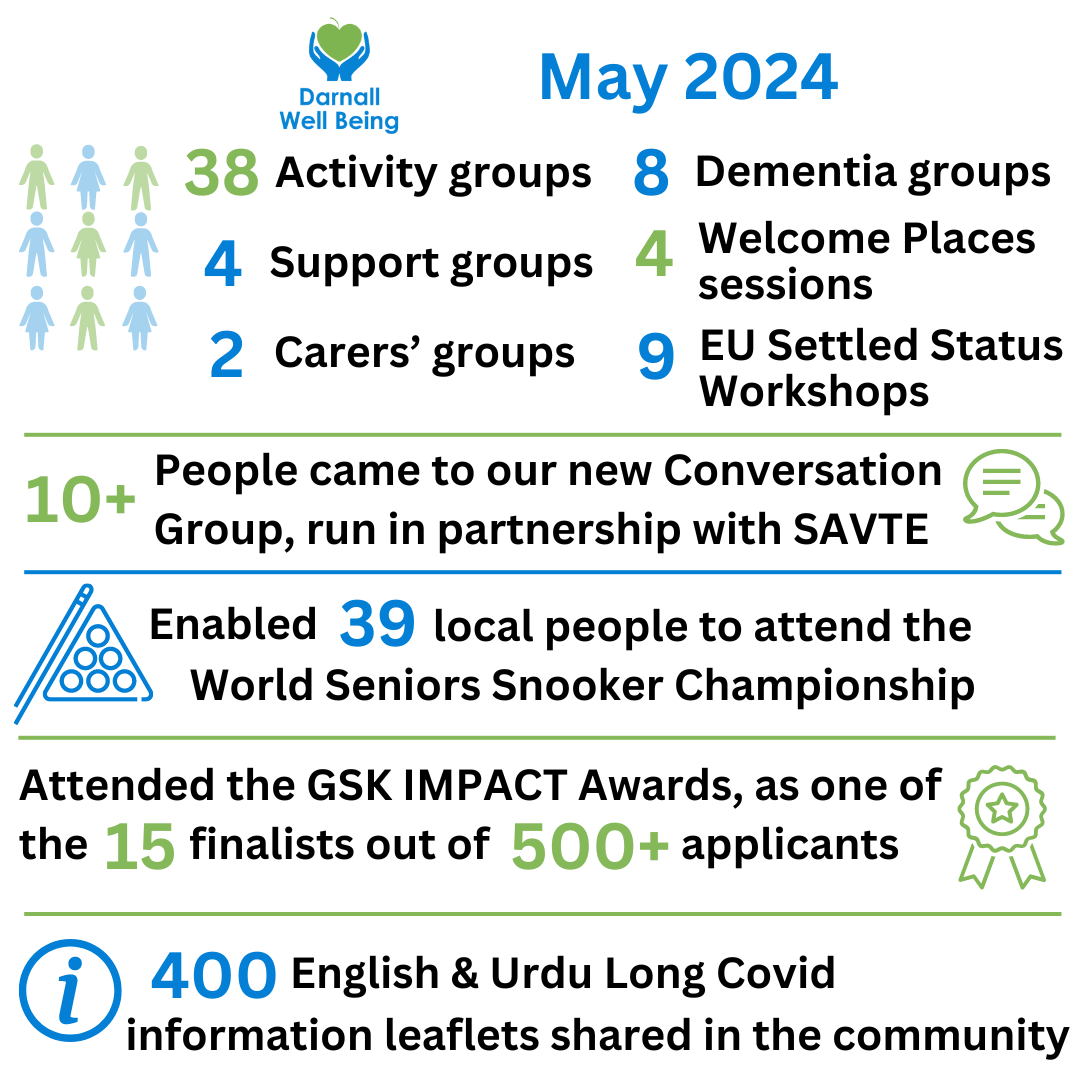
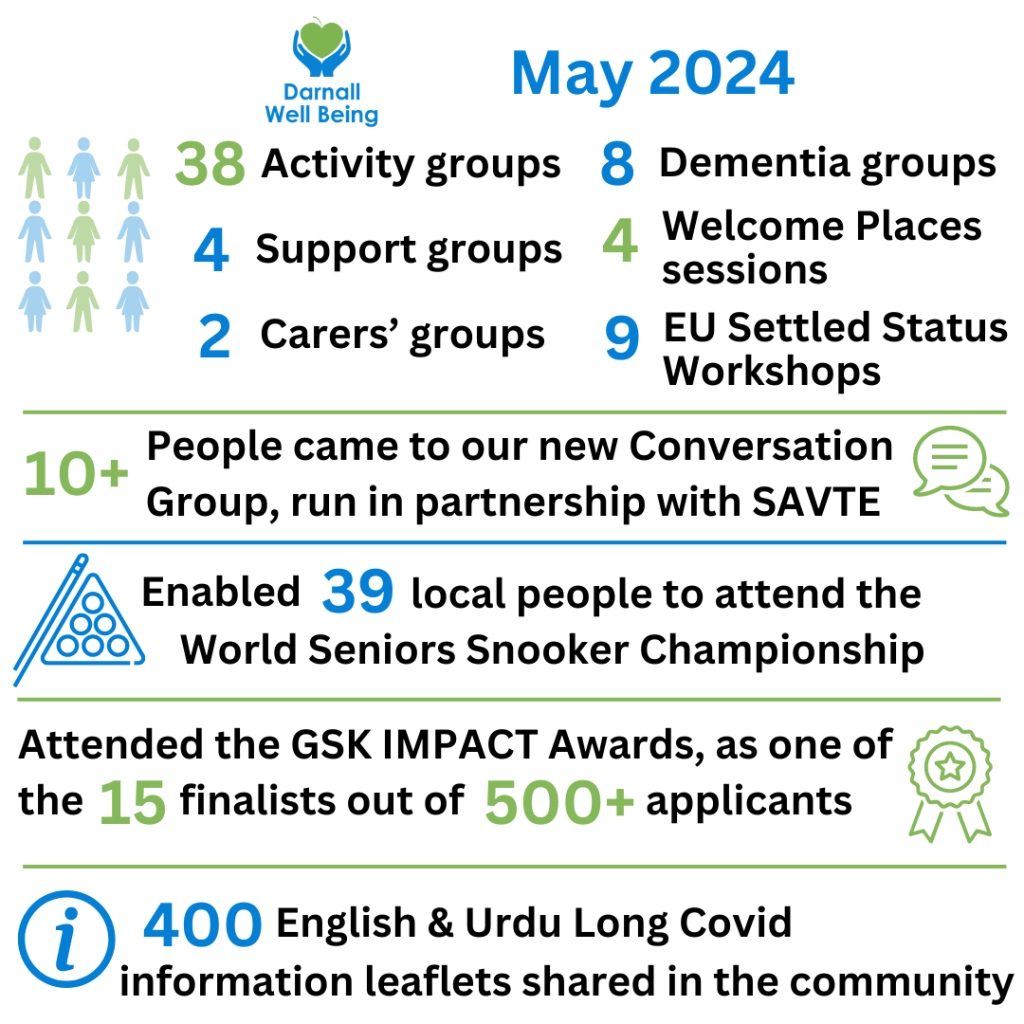
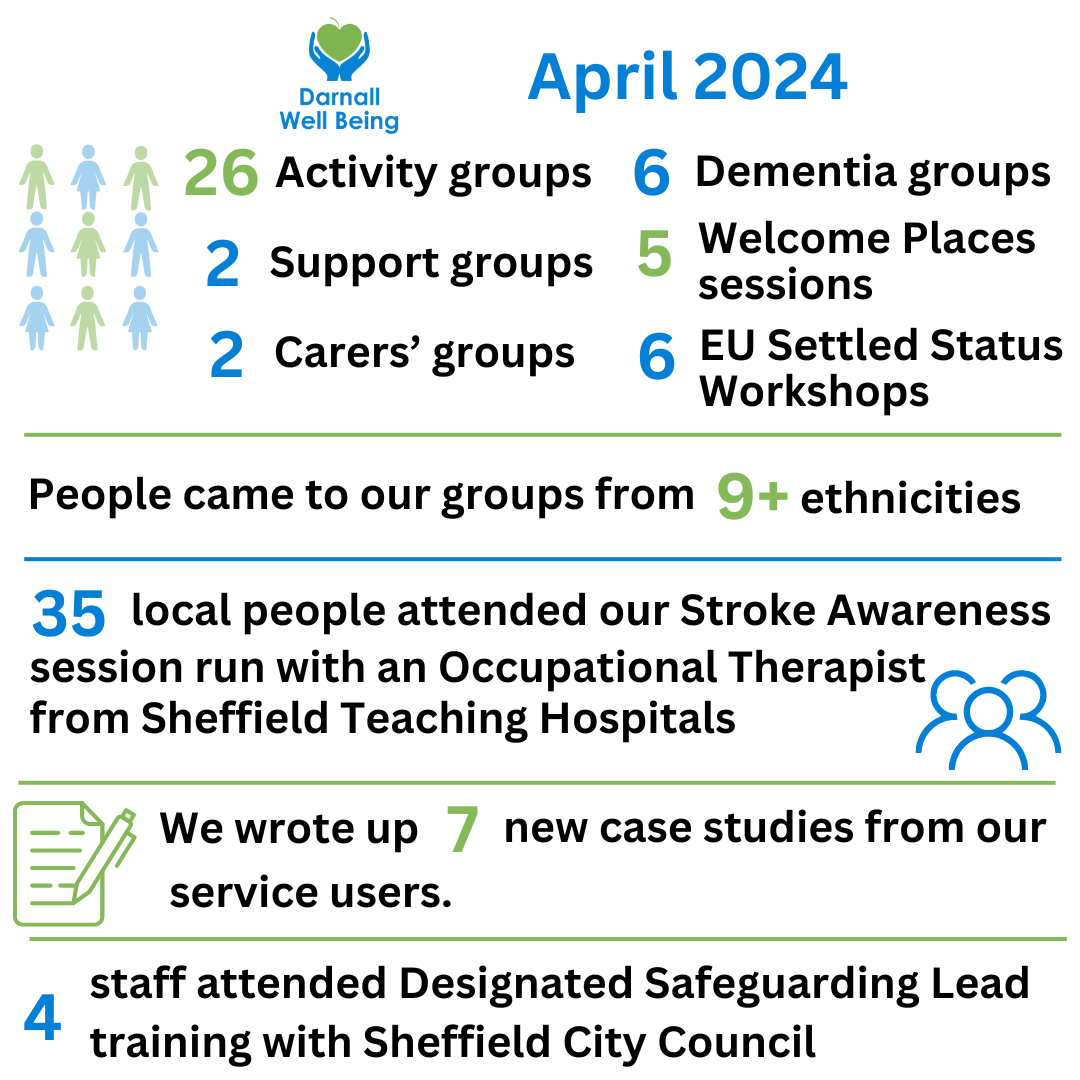
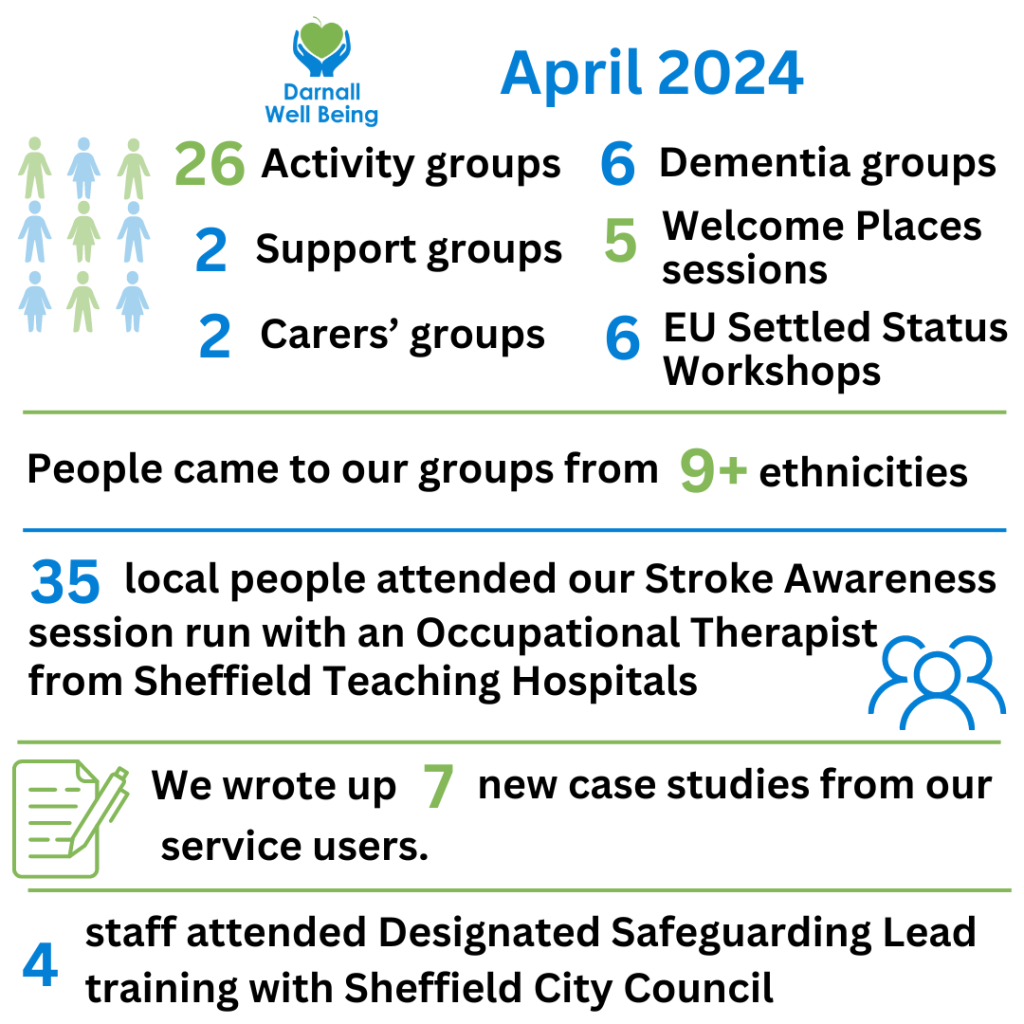
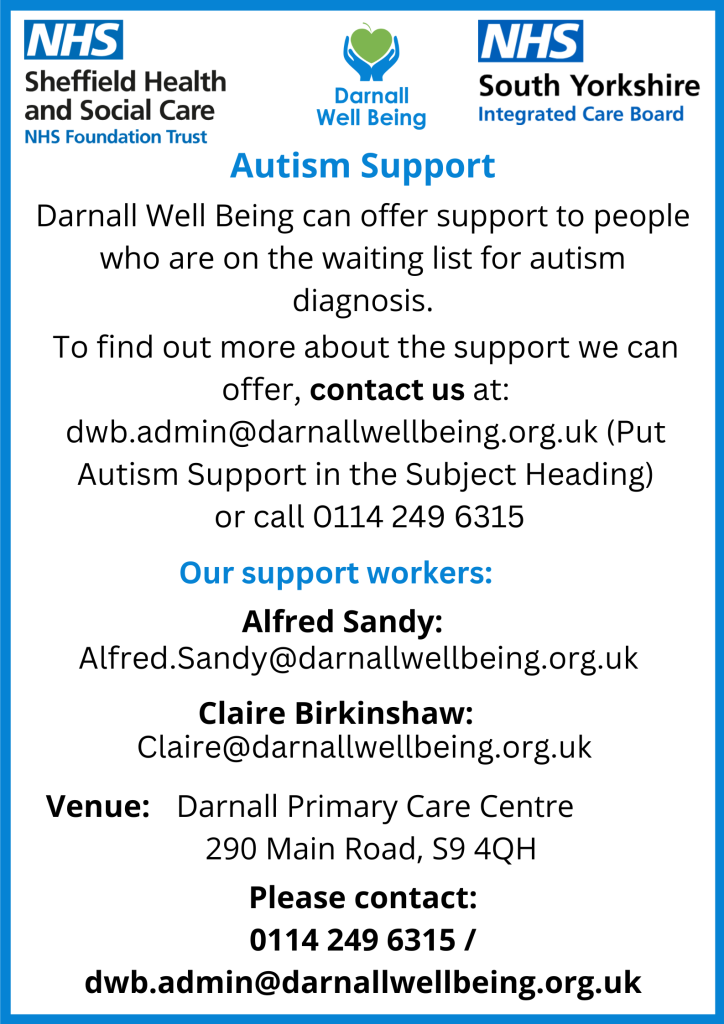
From May 2024 we are taking self-referrals for people who are in need of support whilst on the waiting list for an Autism diagnosis. Contact details are on the poster above.
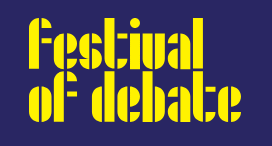
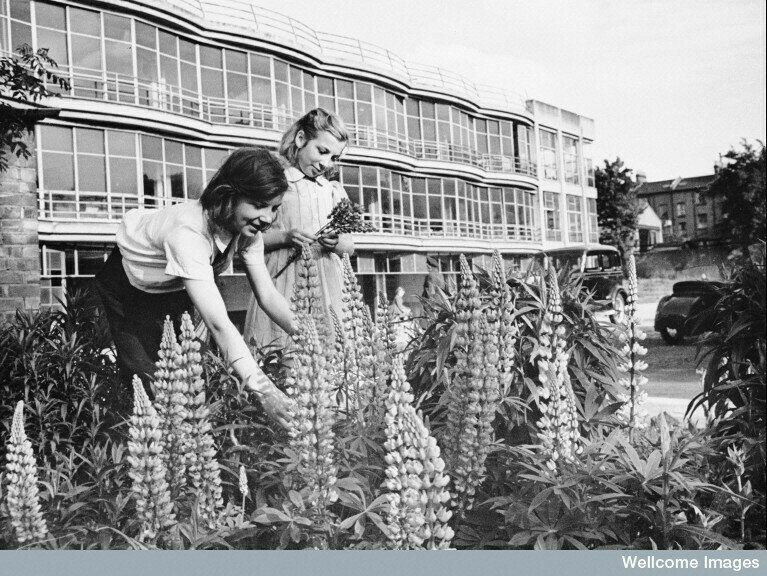
As well as hearing from speakers Jack Czauderna (our founder), Rob Copeland (Director of AWRC) and Simon Duffy (Citizen Network), we also heard from Waqas Hameed and Alfred Sandy from our team, alongside Nigel from from Manor & Castle Development Trust and Glyn from the People Focused Group in Doncaster. Together, they explored the core principles of the ‘Peckham Experiment‘, which have inspired the creation of ambitious and dynamic community-led healthy neighbourhoods in South Yorkshire.
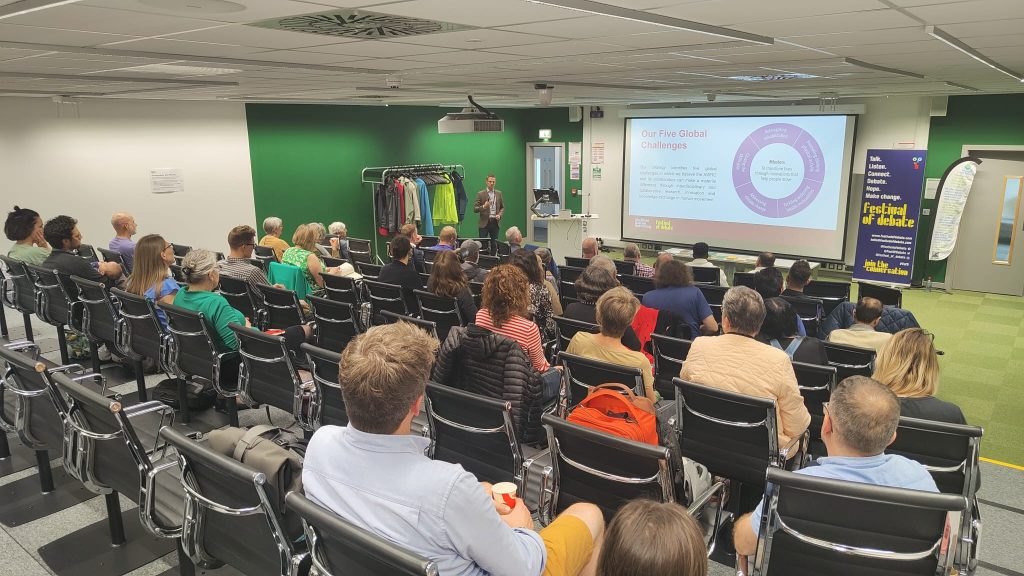
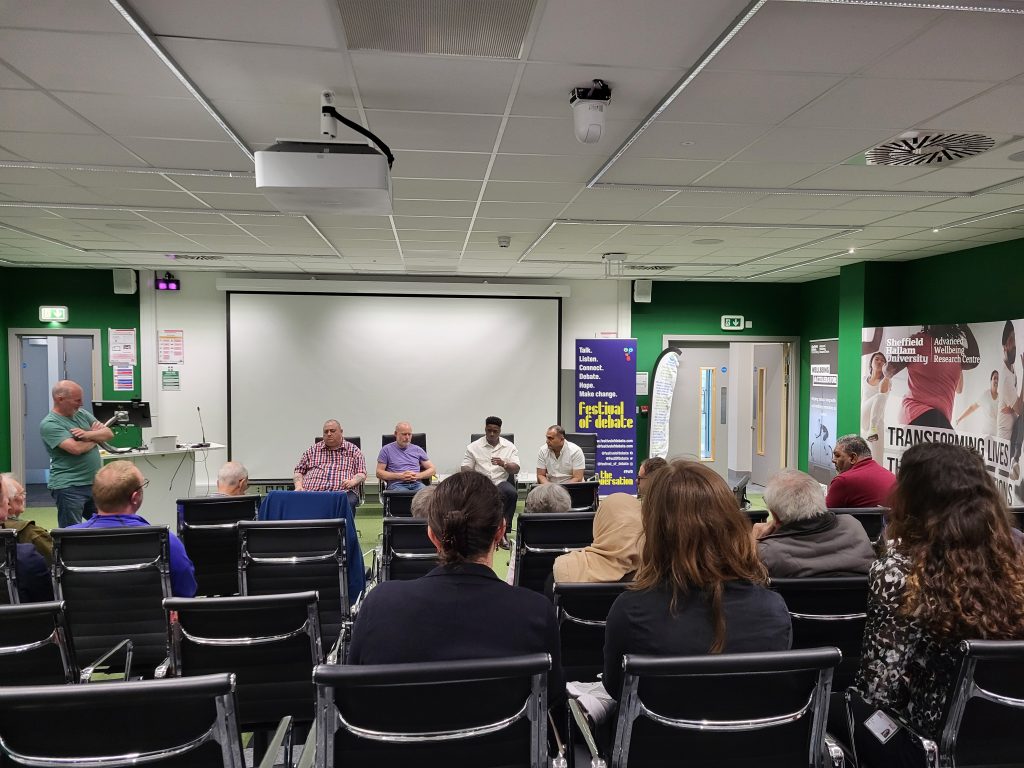
All agreed that the Peckham Experiment was a great example of community and ongoing relationships, whilst also considering what has changed since the project was ended in 1950, both for better and for worse. The panel and audience discussed ways in which our organisations can continue the Peckham legacy. As Waqas said “We’re a small organisation, but with big ambitions”!
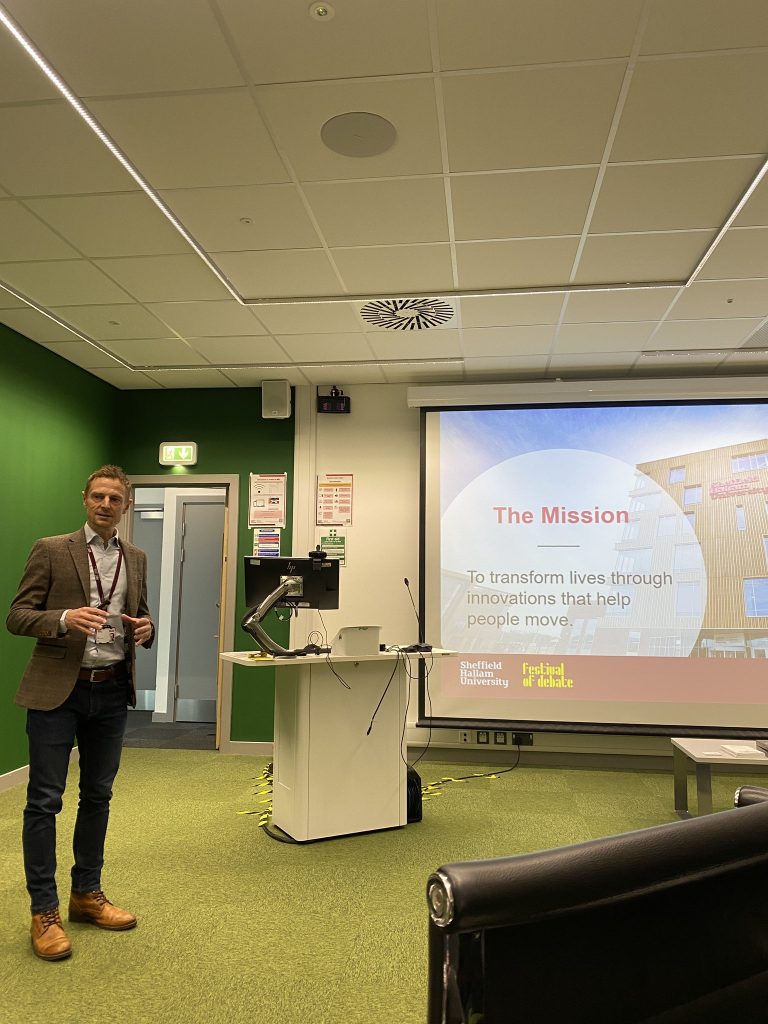
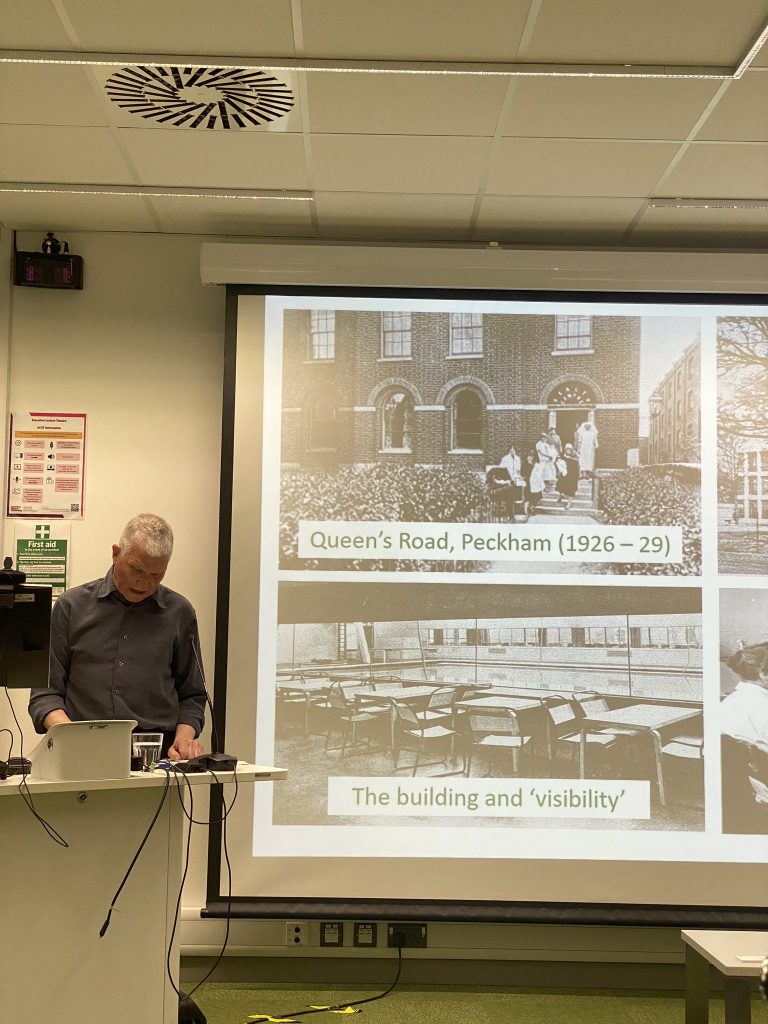
We were glad to have a number of members of the Pioneer Health Foundation in the audience with us. Jason Brannan, Deputy Director of AWRC, was the “keynote listener”, providing a helpful and insightful summary of the key points covered at the end of the debate, and reminding us of Glyn’s message “Don’t give away your power!”.
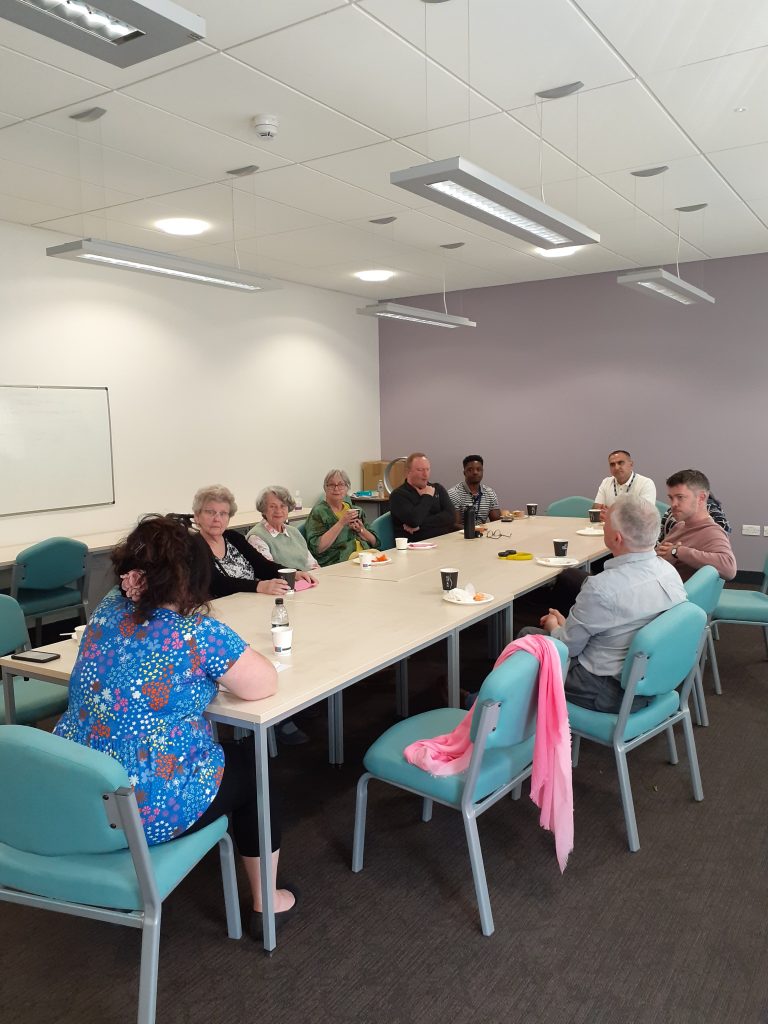
The day after the Festival of Debate, we were pleased to host a meeting with members of the Pioneer Health Foundation. We were also joined by our long term volunteer and service user, Jean, as well as by our embedded researcher, Dave Hembrough. The debate about “what is health” continued, with a lot of interesting conversations around buildings, funding and numerous other topics.
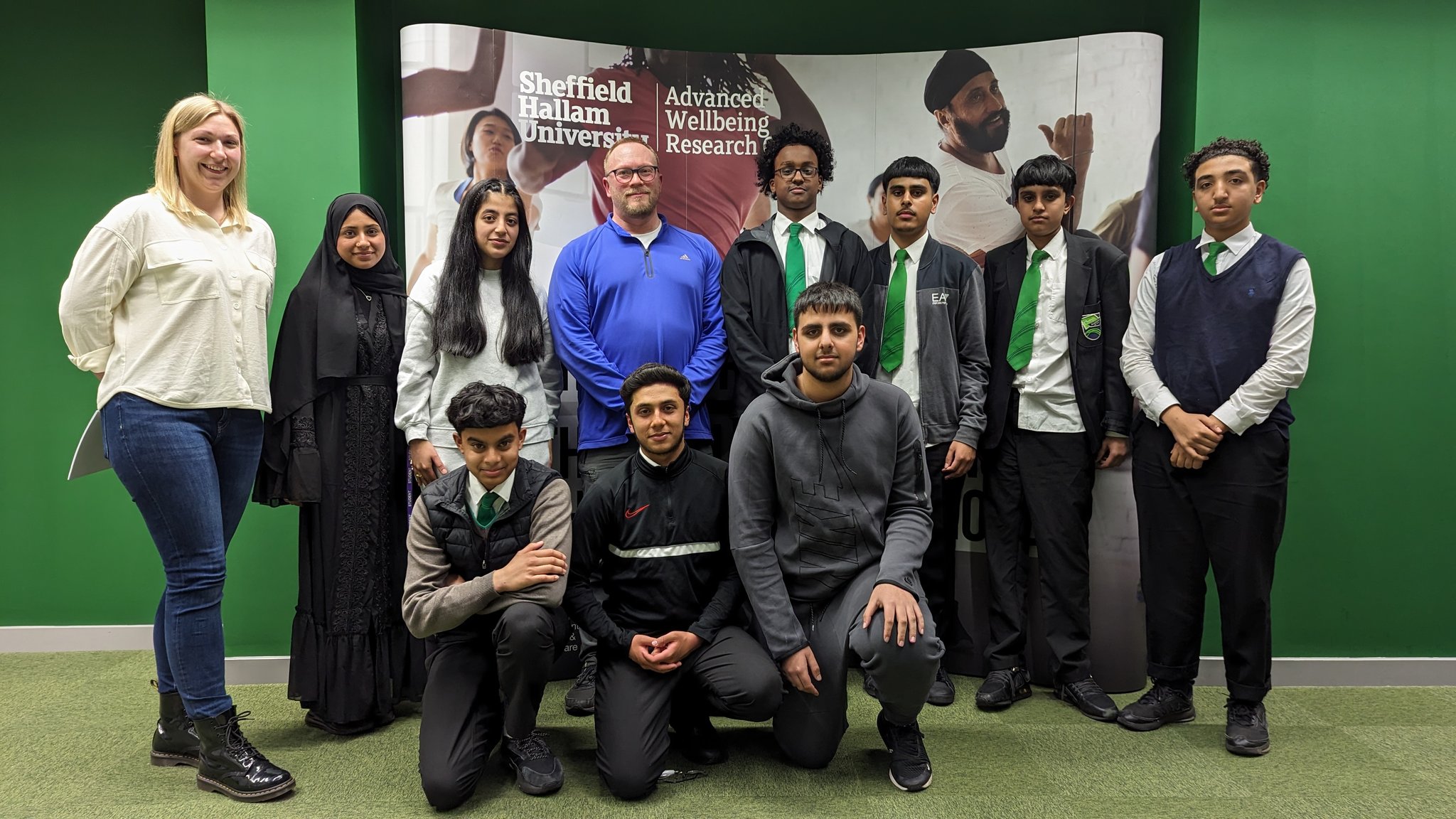
Sheffield Hallam University’s Advanced Wellbeing Research Centre has celebrated the second anniversary of the Civic Fellowship programme aimed at fostering strong partnerships between local community-based organisations and academic researchers.
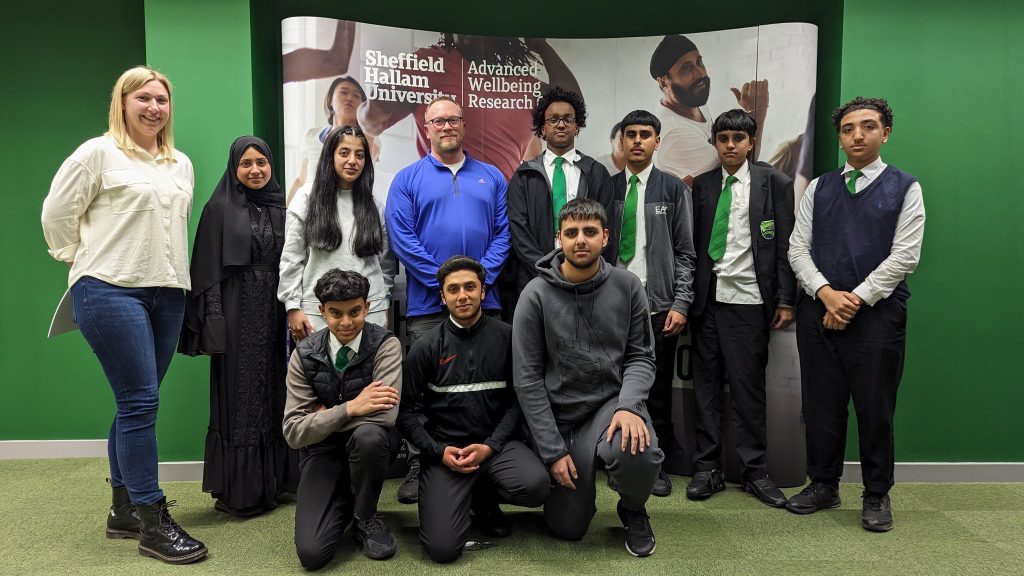
The Civic Fellowship has enabled research projects between the Advanced Wellbeing Research Centre (AWRC) and Darnall Well Being. The Civic Fellowship program is funded by Westfield Health and delivered in partnership with Darnall Well Being and the Darnall Education and Skills Academy (DESA). The focus of the program is on the role of sport and physical activity in raising aspirations, creating improved employability, and enhancing health outcomes for young residents of Darnall.
The project team interviewed community leaders to gain insights into Darnall and explore how sport and physical activity can contribute to social outcomes and improved employment for youth in the area. They also worked with paid youth interns, to understand how young Darnall residents were building resilience in the aftermath of the pandemic. The AWRC recruited 12 interns aged between 16 and 23-years-old and investigated their physical activity, wellbeing, experiences living in the area, and any barriers to employment opportunities.
Themes also included focus on the roles that family, friends, finance and school plays in contributing to leading a fit and healthy life with meaningful employment and contributing to society.
A celebration event to mark the conclusion of the second year of the Civic Fellowship programme was held at the AWRC on Thursday 18 April 2024. At the event, the youth interns presented their research findings and shared their experiences and learnings, highlighting the support they need to achieve their aspirations.
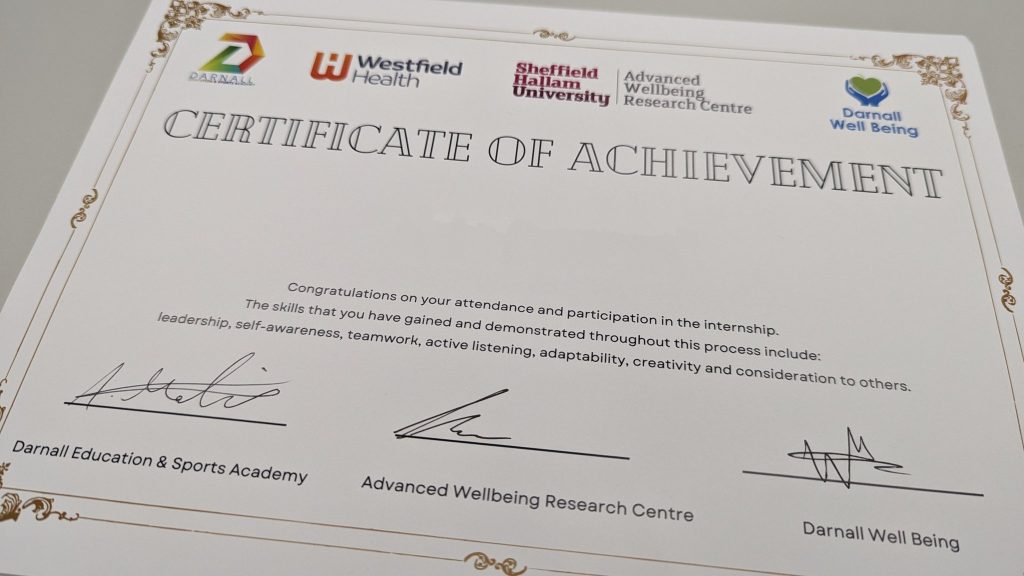
Dave Hembrough, project lead and research fellow at Sheffield Hallam University, said: “This Civic Fellowship has been a valuable opportunity to deepen our understanding of the challenges and aspirations of young people in Darnall. By working closely with Darnall Well Being and the local community, we have been able to co-create research that can directly benefit the residents and inform future initiatives.”
Lucy Melleney, CEO of Darnall Well Being, added: “We are pleased to support the second year of the Civic Fellowship as it reflects the shared values and genuine commitment to do things differently. It places young people’s voice and lived experience at the heart of community-based research and can be a powerful asset in developing our understanding of the needs and aspirations of local young people.”
The Civic Fellowship is part of a set of wider commitments it has made to the region under its Civic University Agreement.
Professor Rob Copeland, Director of the Advanced Wellbeing Research Centre said: “The Civic Fellowship program is a testament to Sheffield Hallam University’s commitment to meaningful engagement with the local community. By fostering these partnerships, we aim to create lasting positive impact and ensure that our research and initiatives truly address the needs and priorities of all our communities.”
Find out more about about Sheffield Hallam University’s civic commitments.
Civic fellowships have been established to nurture strong partnerships between local community-based organisations and academic researchers at Sheffield Hallam, as part of the University’s ongoing Civic commitments.
The first Civic Fellowship enables research projects between the AWRC and Darnall Well Being. This partnership enhances the place-based research of the AWRC and has been made possible through the support of Westfield Health.
The project demonstrated that young adults want to actively contribute to the development and wellbeing of the area and particularly want to engage with each other, building their links and networks to support the whole community.
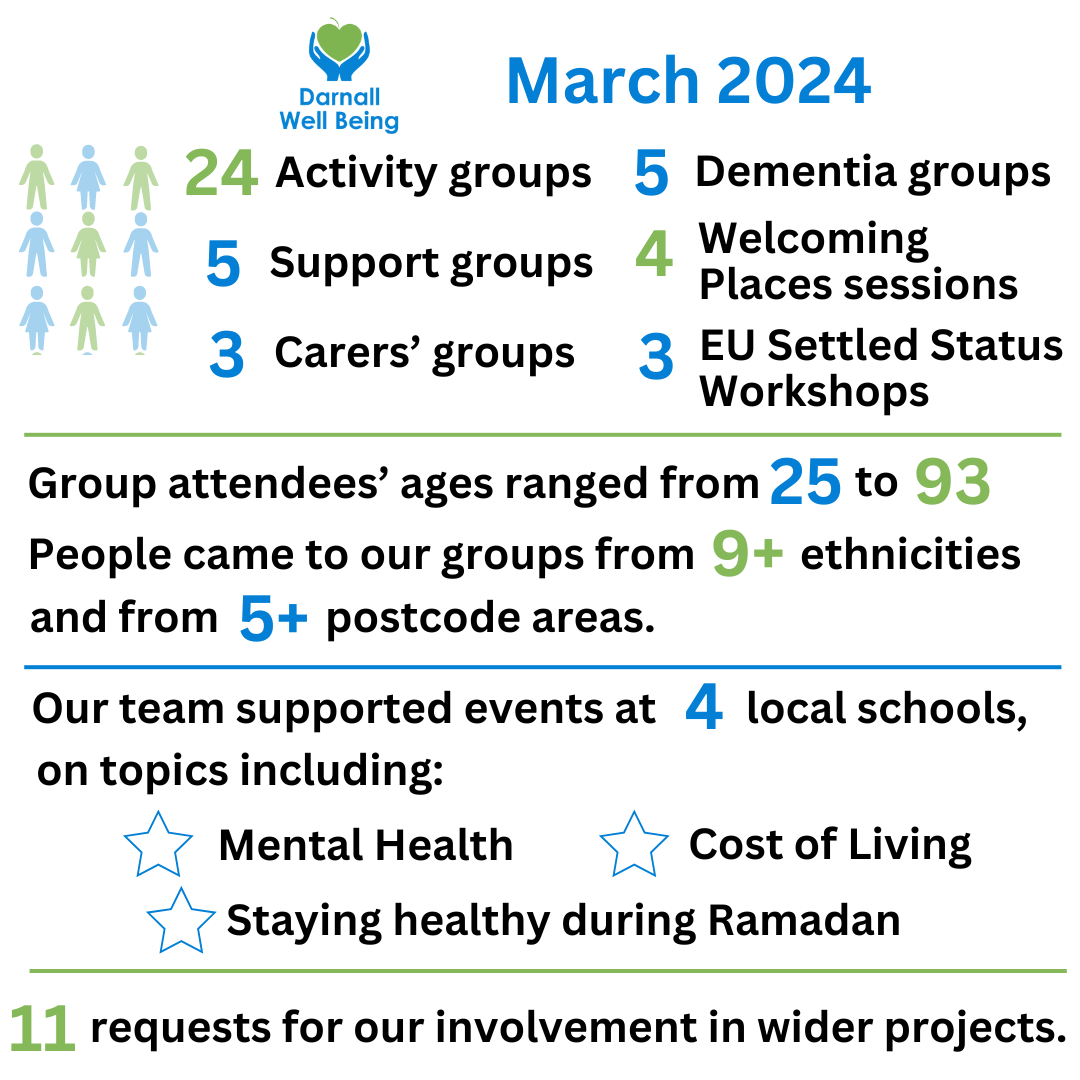
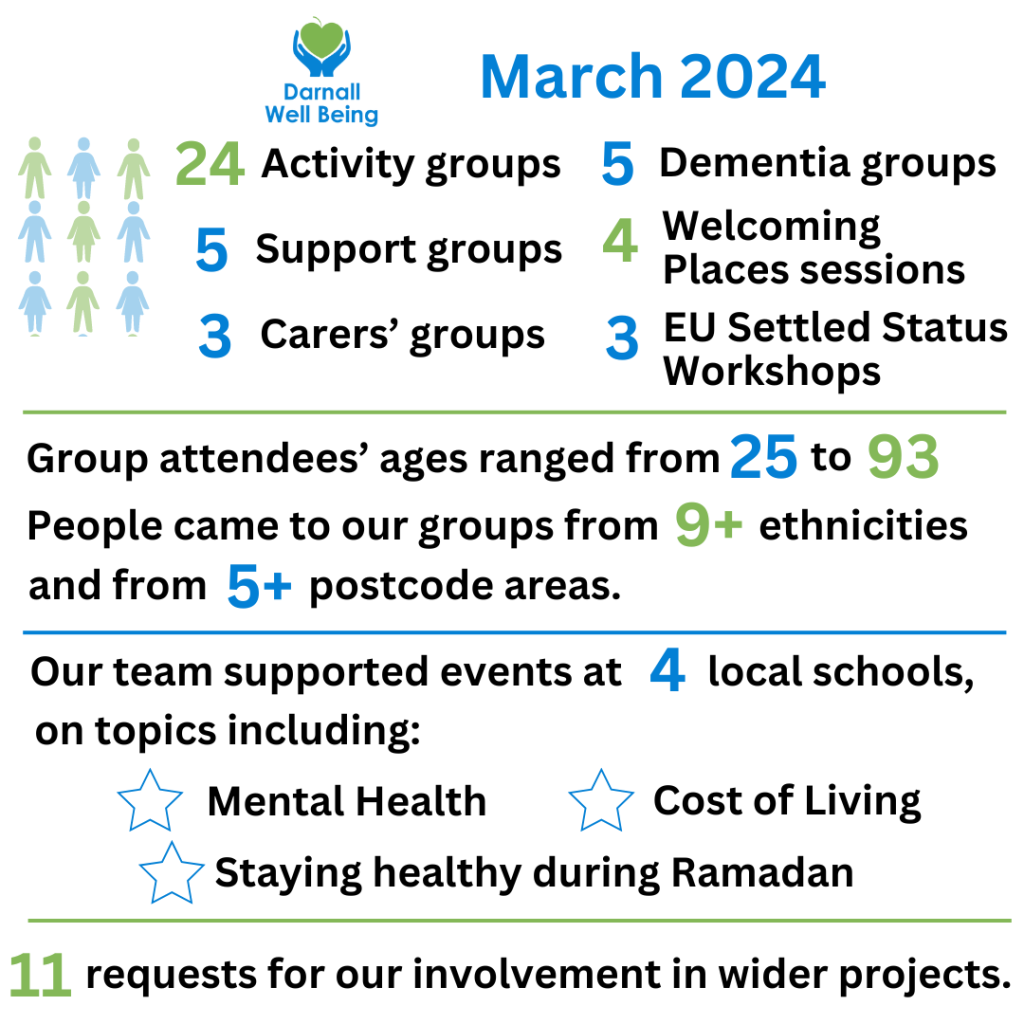
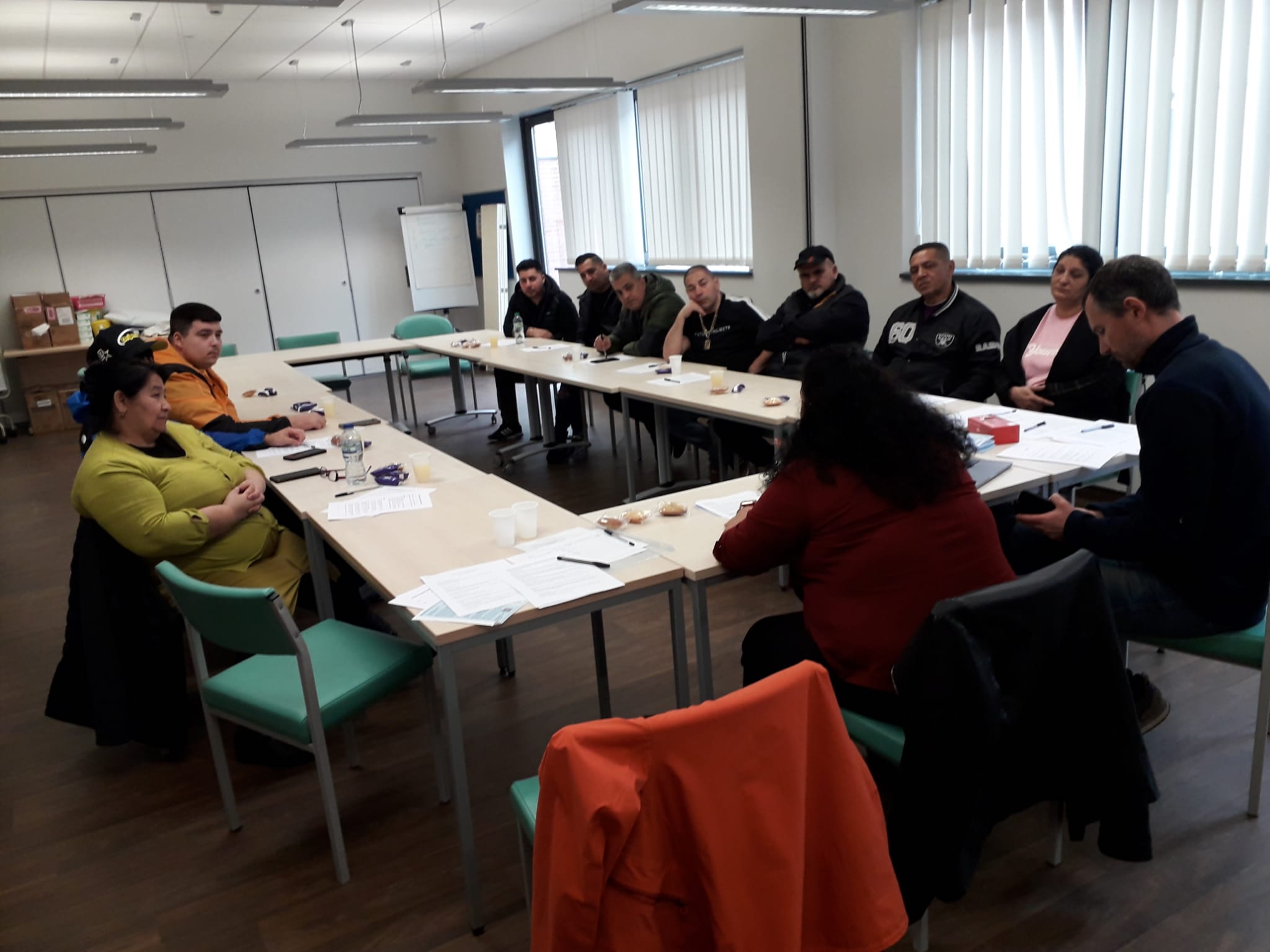
Thanks to the trust that she has built in the Roma community during her time working with us, Lucie Ward, one of our Community Development Workers, has been working closely with Dr Owen Parker and Olga Fuseini from the University of Sheffield on the challenges faced by Roma communities in navigating the EU Settlement Scheme (EUSS). They have organised workshops, including at Darnall Well Being, to inform the local Roma community about EUSS. Lucie, Owen and Olga have also been working with Sheffield City Council in relation to various current and ongoing challenges faced by Roma people.
In addition, Lucie has worked with the University of Sheffield on a series of information resources on EUSS, and has made them all easily accessible in a padlet here:
https://padlet.com/dwbadmin/euss-self-help-y733h7x13bnr3tn8
In early April 2024, we collaborated with the University to run a workshop for Roma community members from Darnall and Tinsley. Ten people from different local families attended, and were enthusiastic in participating in conversations, learning more about EUSS resources and support. They can now share what they have learned onwards with others in the local Roma communities, empowering people to understand and manage their own EU settled status.
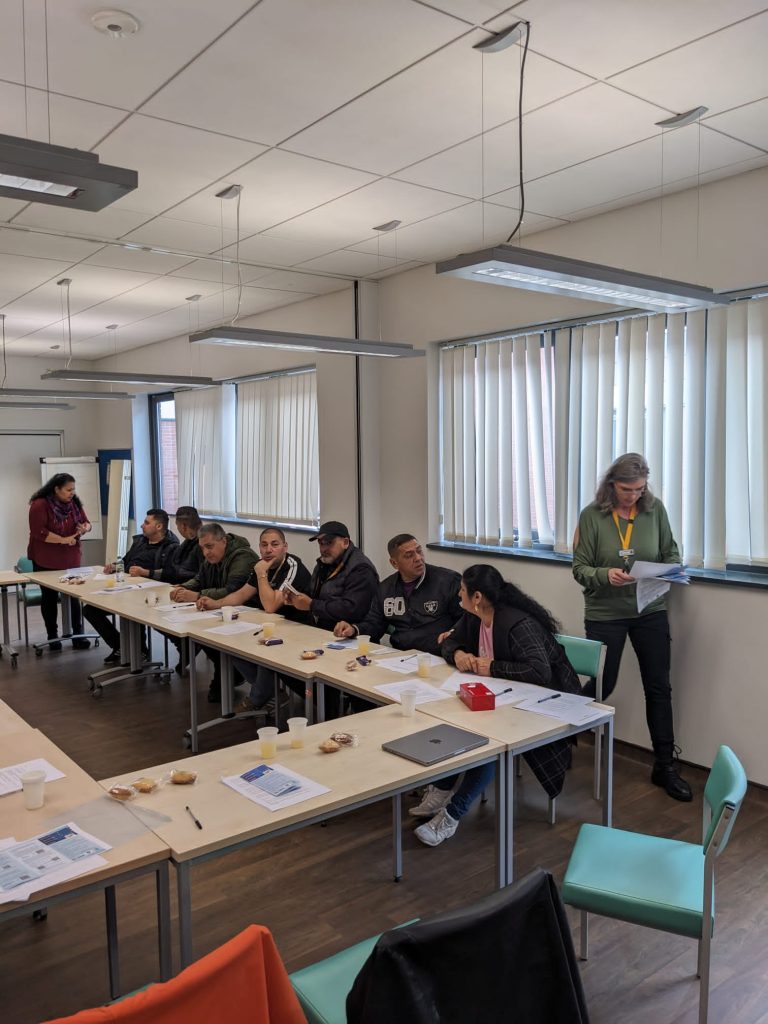
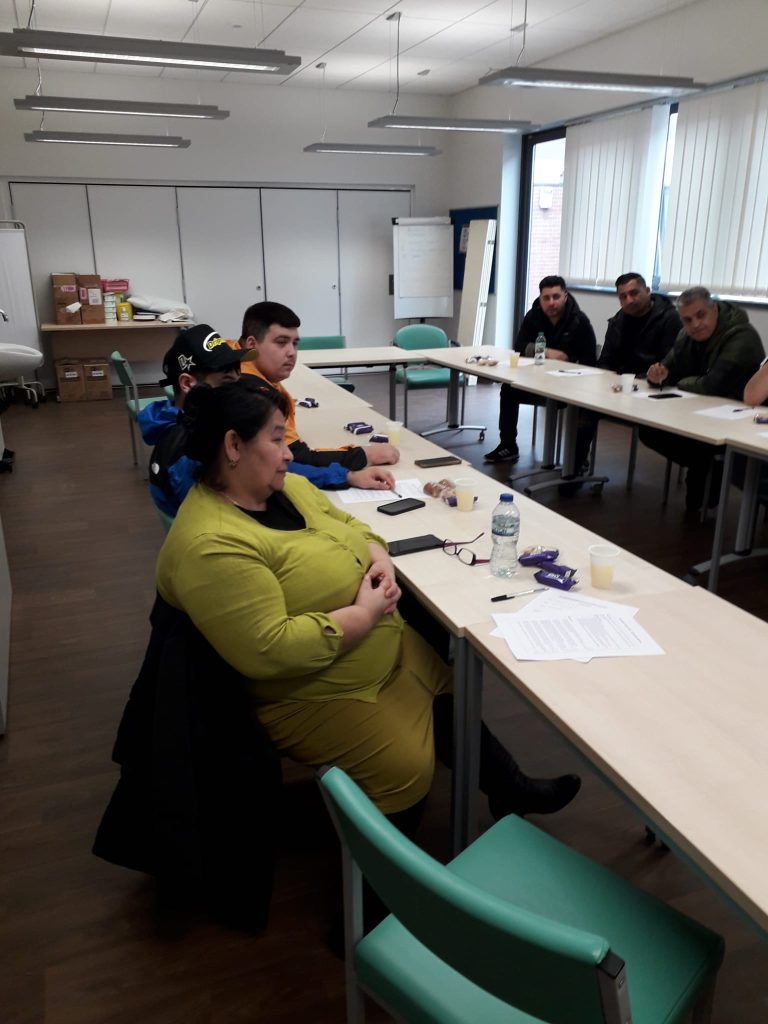
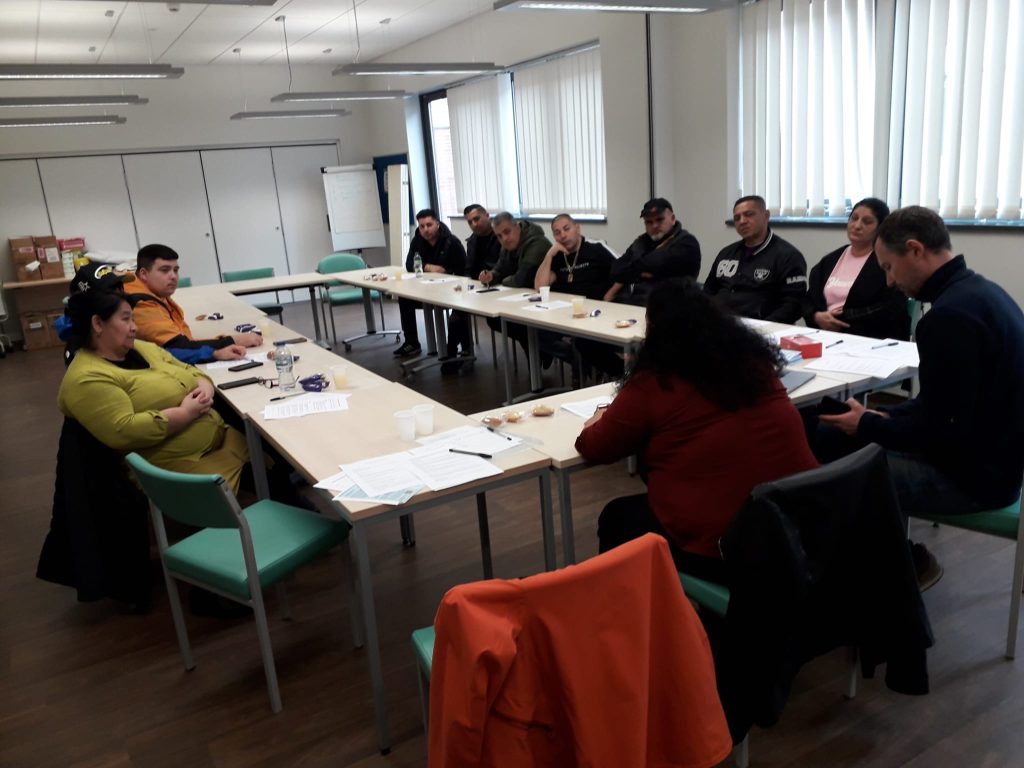
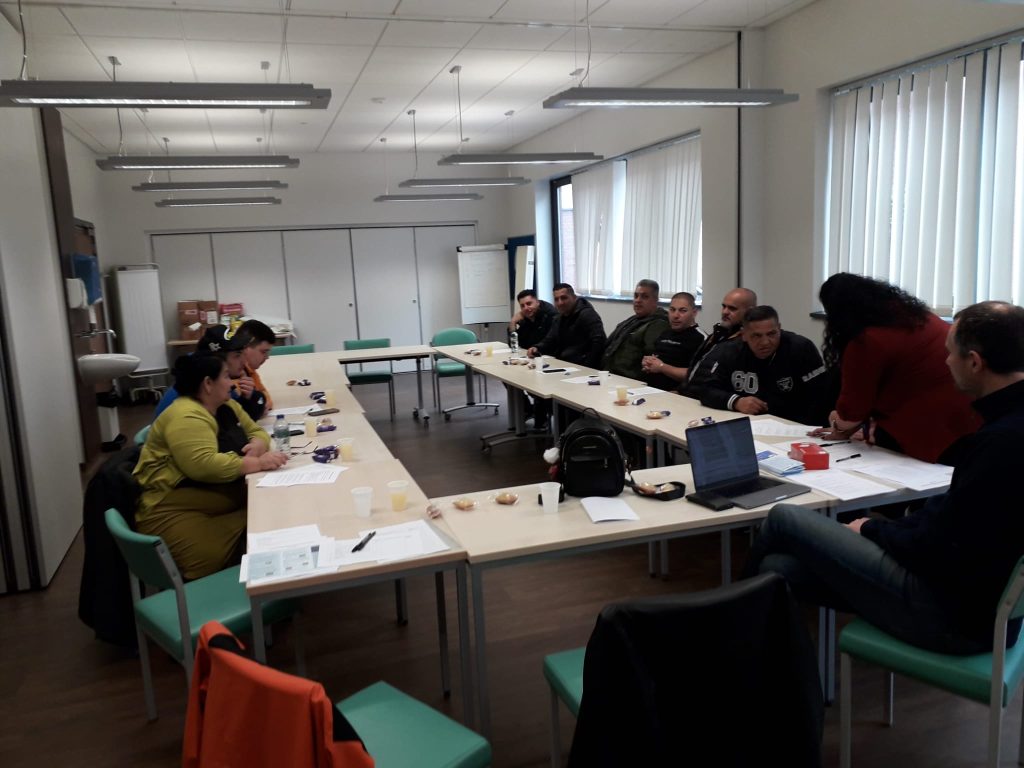
Owen has recently shared Lucie’s extensive knowledge and insights with the EU delegation in London, as well as with national charities advocating on behalf of Roma (such as the Roma Support Group) and EU citizens (such as the3million and Here for Good). This work has contributed to broader campaigning efforts aimed at achieving practical changes to EUSS.
The feedback Owen gave us about Lucie’s involvement just shows how important the links are that she has built and continues to maintain:
“Lucie’s vital work and extensive knowledge of the practical difficulties encountered by the Roma community in relation to EUSS has been invaluable in helping us to shape a set of recommendations that, if implemented, would make it much easier for vulnerable Roma EU citizens to apply for and use their status in the UK.”
Owen Parker
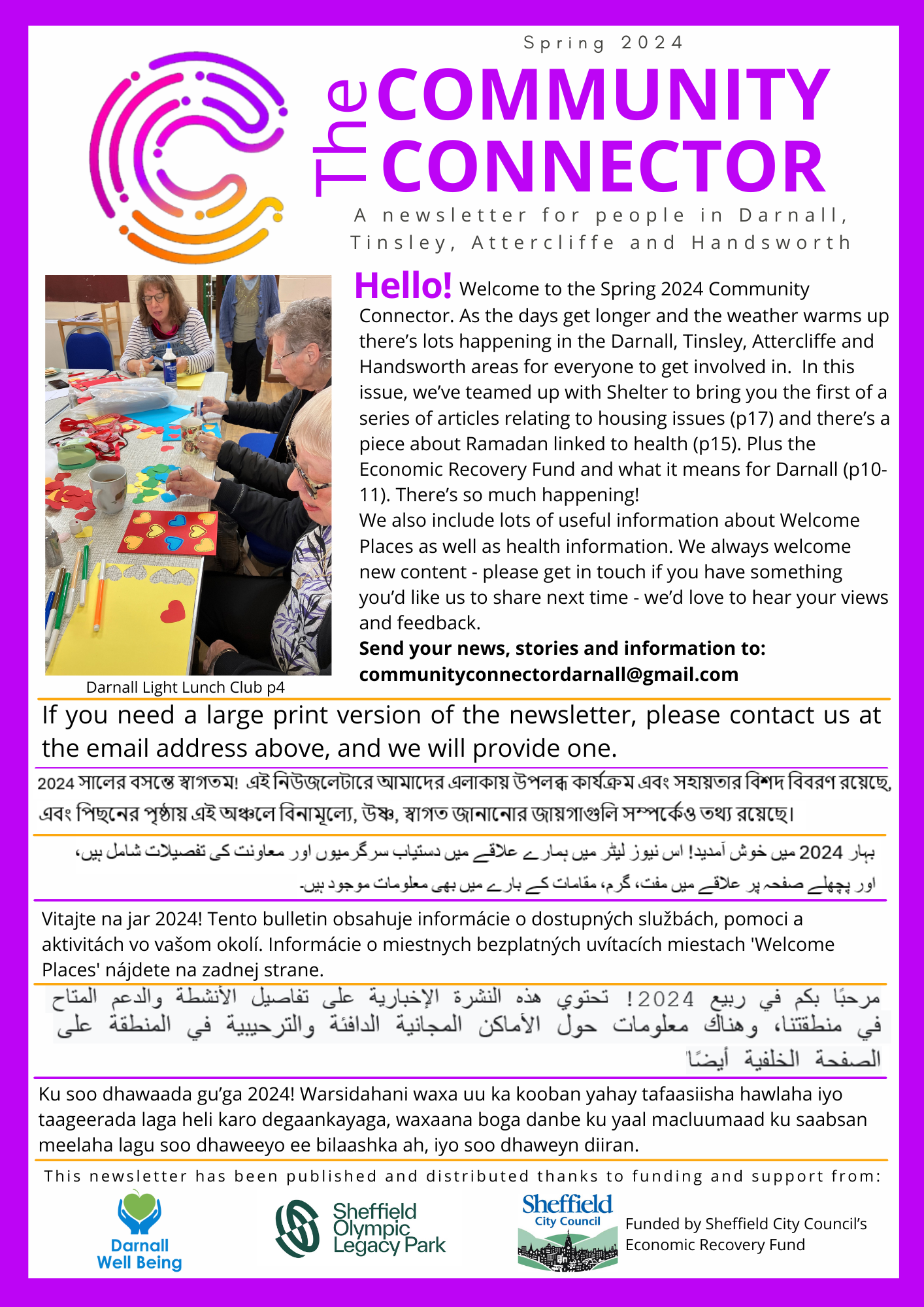
We’re happy to share the latest edition of the Community Connector newsletter. Working with Sheffield Olympic Legacy Park, Tinsley Forum, St Alban’s House Christian Community and local resident Shabir Aziz, we have put together content from over 40 different organisations. We’ve actually expanded from 16 to 20 pages, to fit it all in!
Printed copies will be available to pick up in public places around the local area, or you can read it online here:
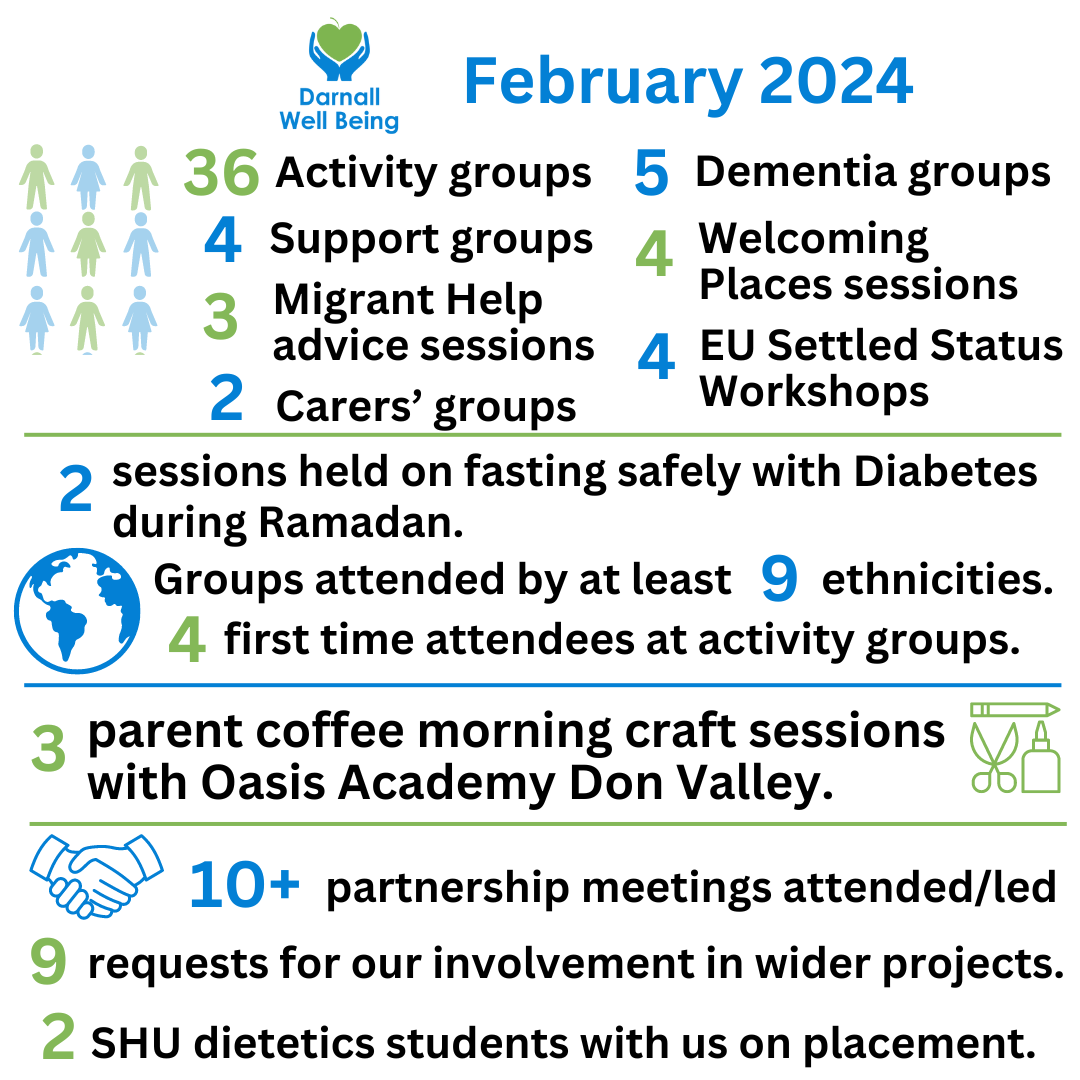
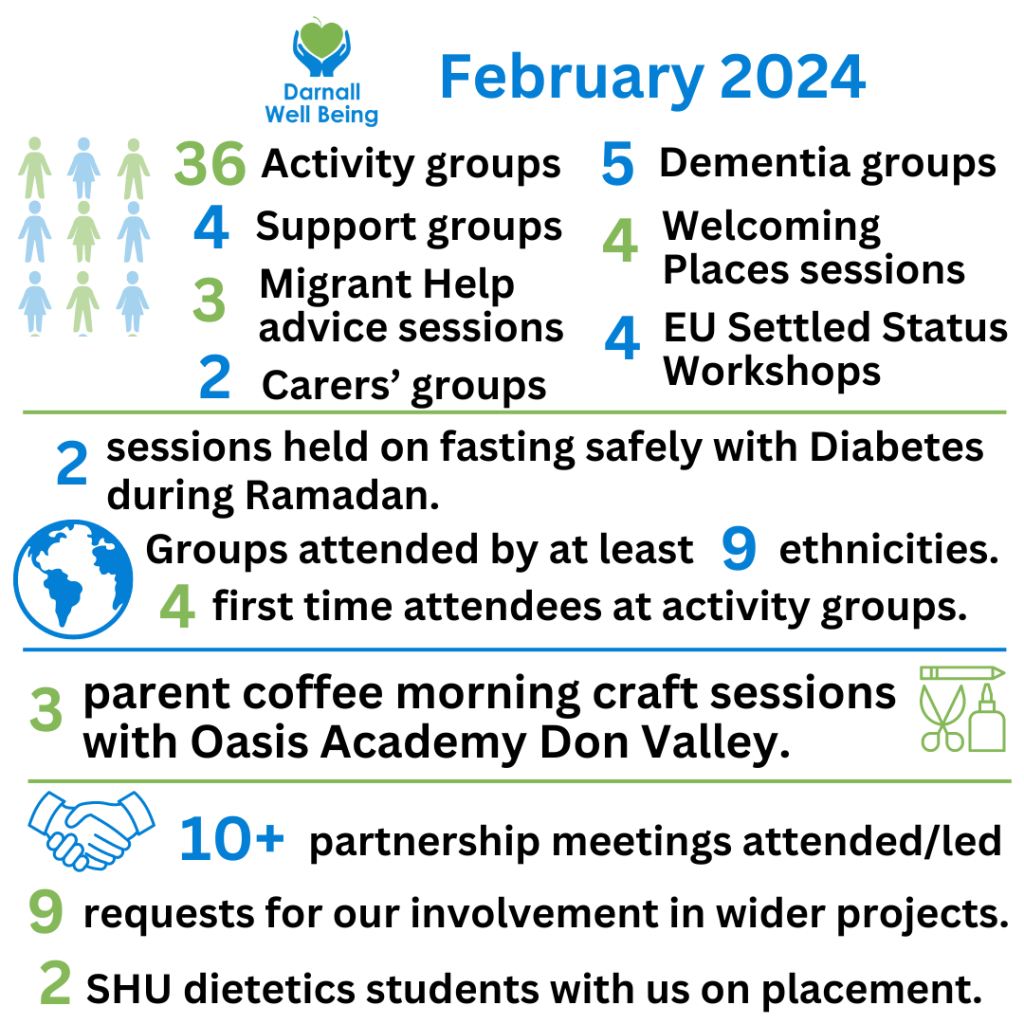
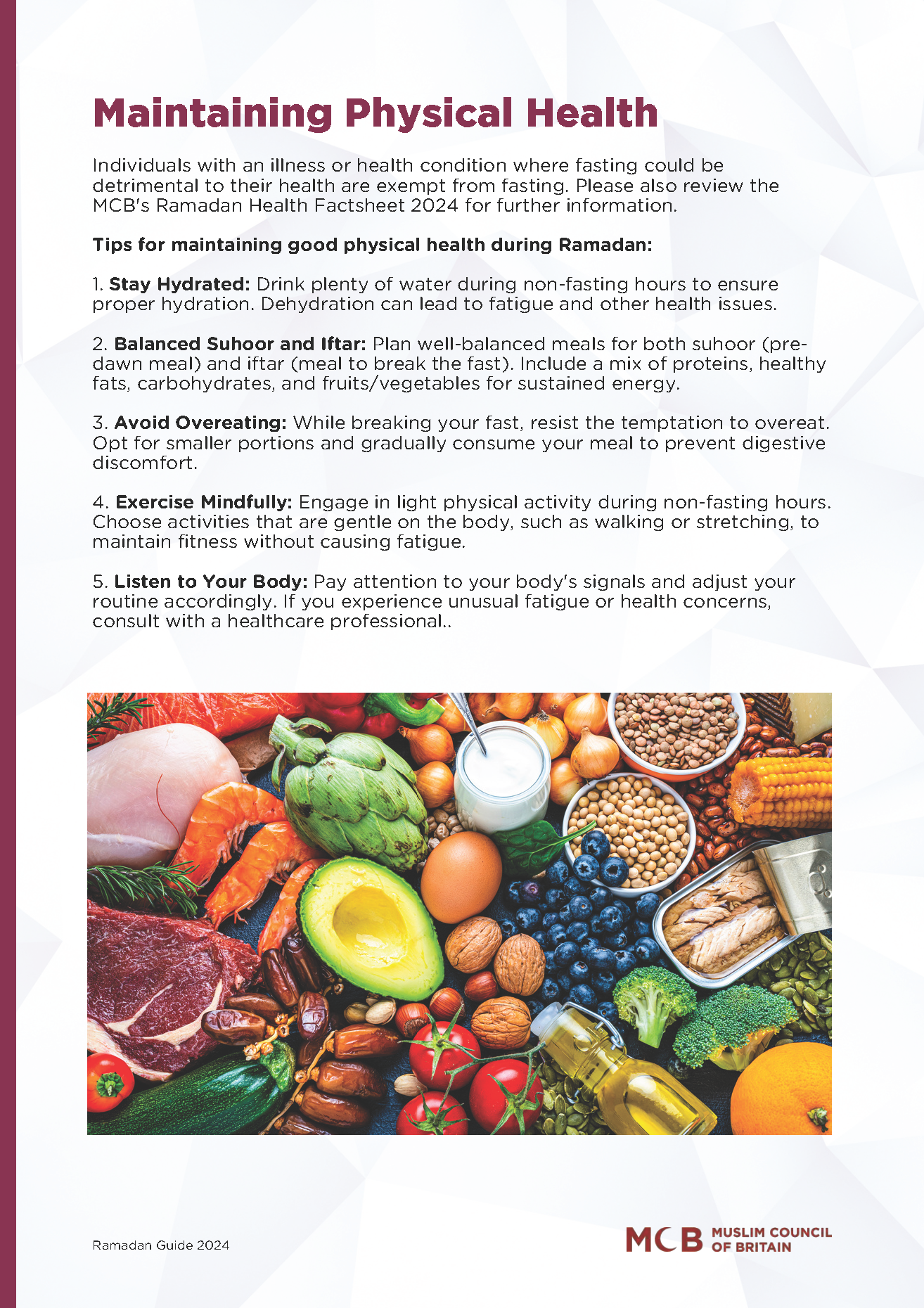
Fasting is a big part of Ramadan, and it’s important to take care of your health whilst you fast. Here are some easy tips to help you stay healthy during Ramadan.
When you break your fast, foods like whole grains, proteins, and healthy fats can help to keep you energized throughout the day. Choose foods that give you long-lasting energy and help control your blood sugar. Try not to overeat, and focus on foods that give you the nutrients you need.
Stay hydrated by drinking lots of water when you’re not fasting. Try to include water-rich fruits and vegetables in your meals, too. Avoid too many drinks with caffeine or sugar in, as they can just make you feel thirsty.
To stay healthy, you could do some light exercise when you’re not fasting, like having a short walk, stretching, or doing other gentle exercises. Save more intensive exercise for times when you’re not fasting, so you don’t feel tired or dehydrated.
Try to make sure you get enough sleep each night. Getting enough sleep is important for helping you to feel good and think clearly.
The MCB have put together a more detailed guide to looking after yourself during Ramadan. Two pages from it can be viewed here, or you can download the full guide below.
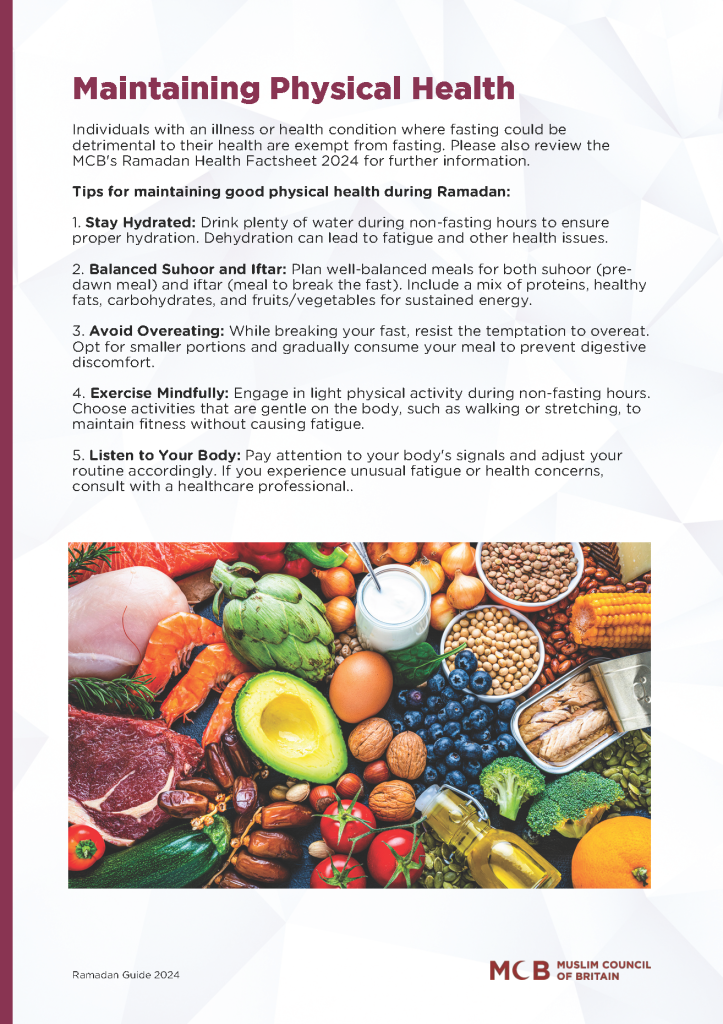
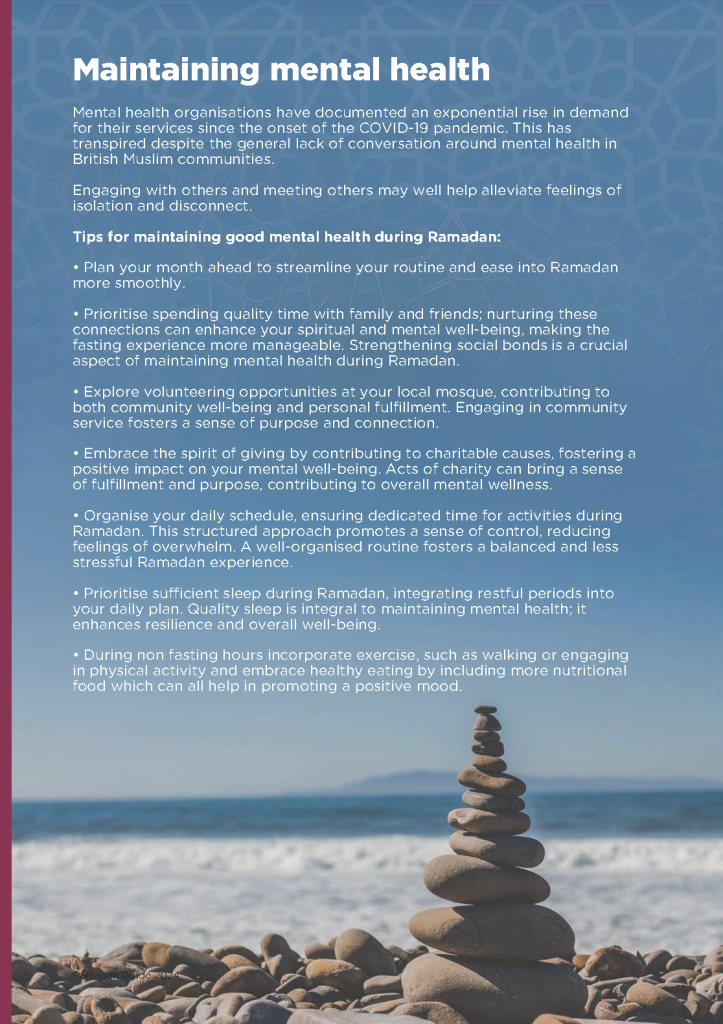
There can be risks associated with fasting when you are living with Diabetes – we recommend talking to your healthcare team and Imam before deciding whether to go ahead with fasting. We also put together the flyer below to help with what to think about if you’re thinking of fasting and you live with Diabetes.
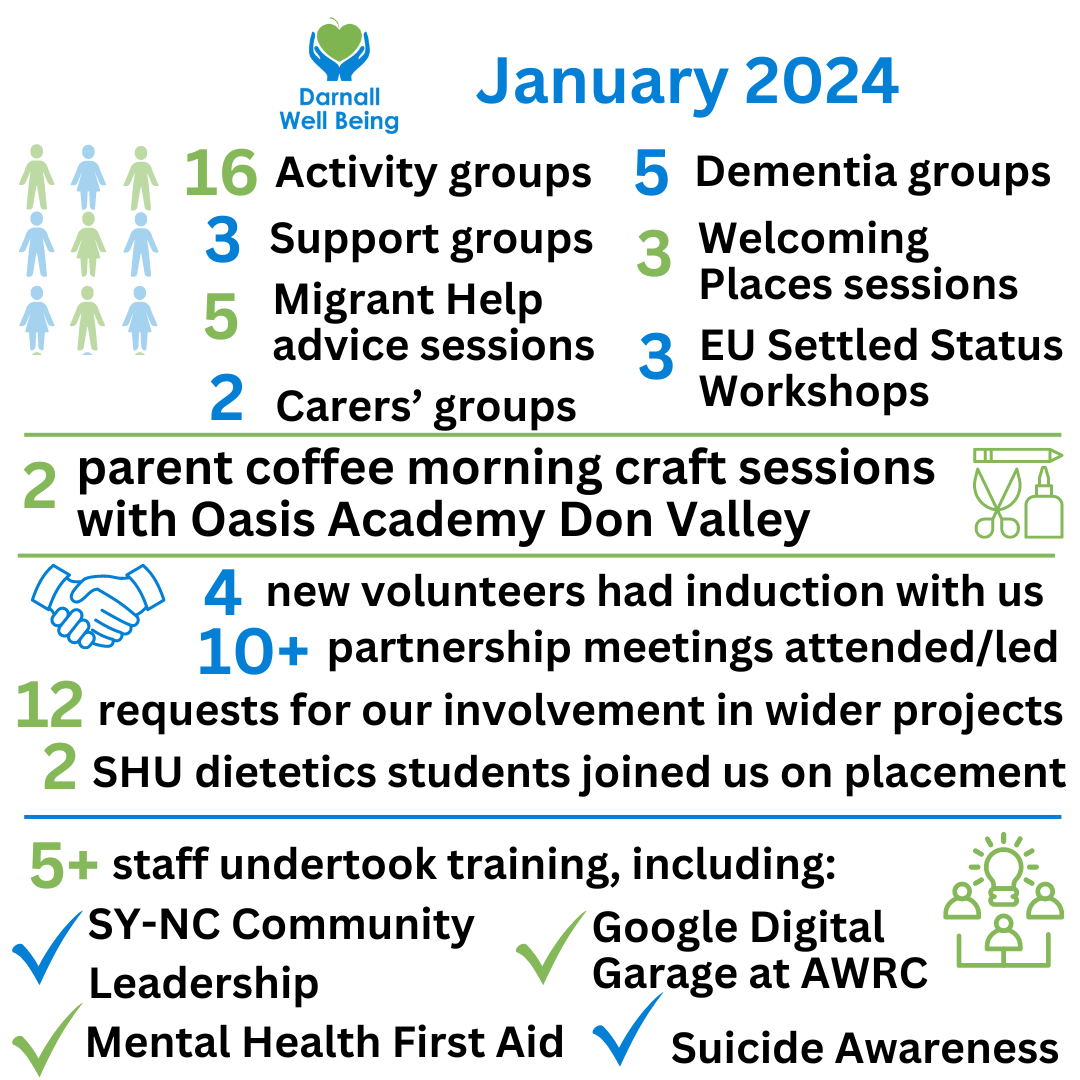
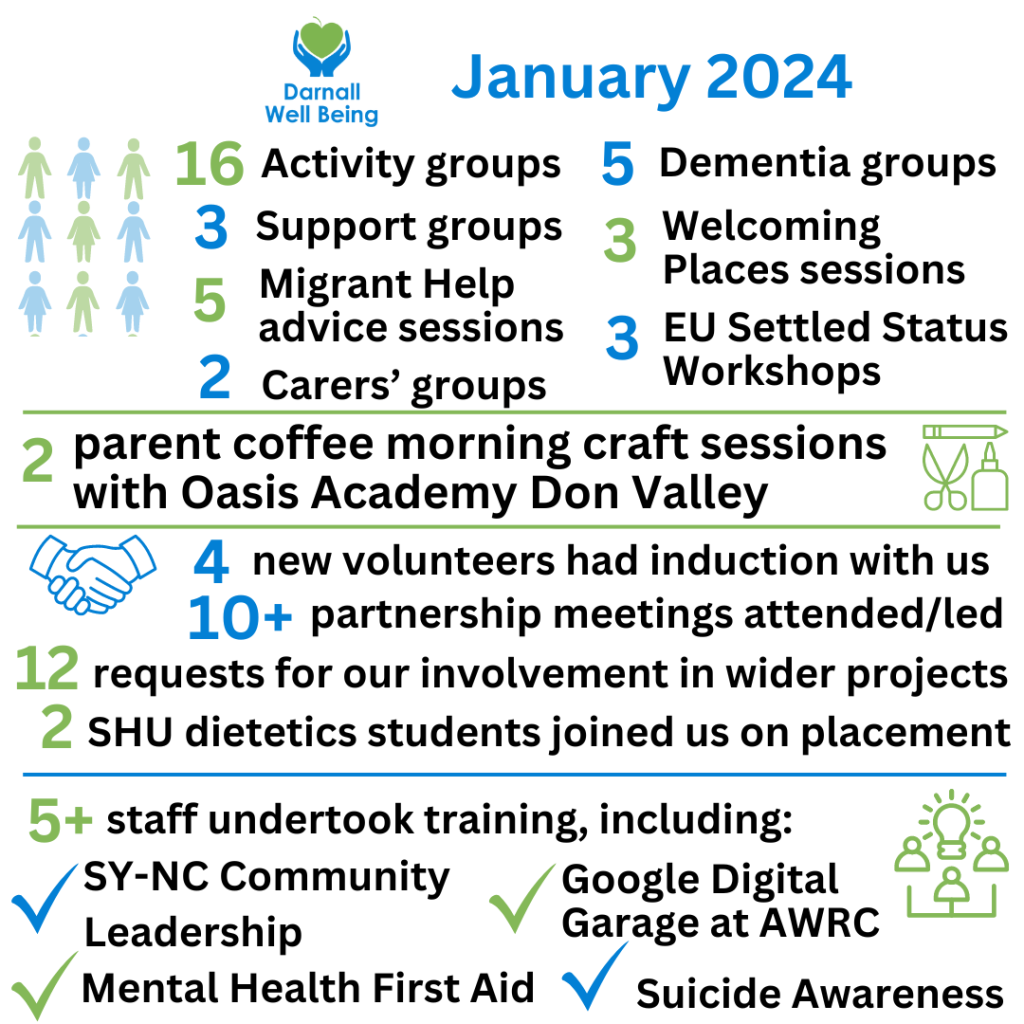
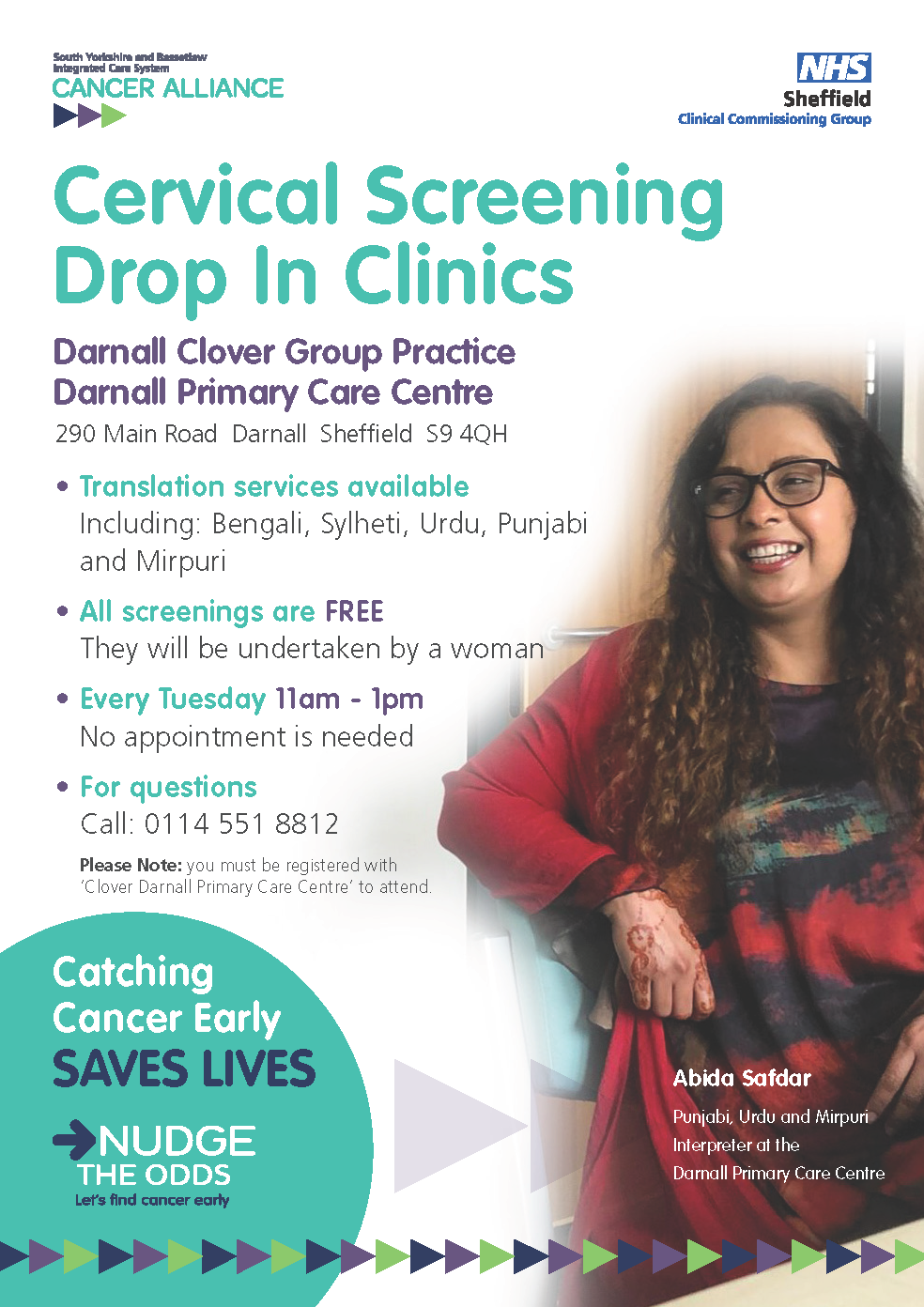
Cervical Cancer Prevention Week 2024 is a good time to share about the work our social prescribing team have been doing with Primary Care Sheffield for some time, to promote uptake amongst local women of cervical screening drop-ins. It’s great to see that the approach was recognised by Nursing in Practice GP Awards. Our health and wellbeing workers have found it is so helpful that an interpreter is available at these sessions, when they’re encouraging local women to attend for screening. Flyers for the clinics are shared below.
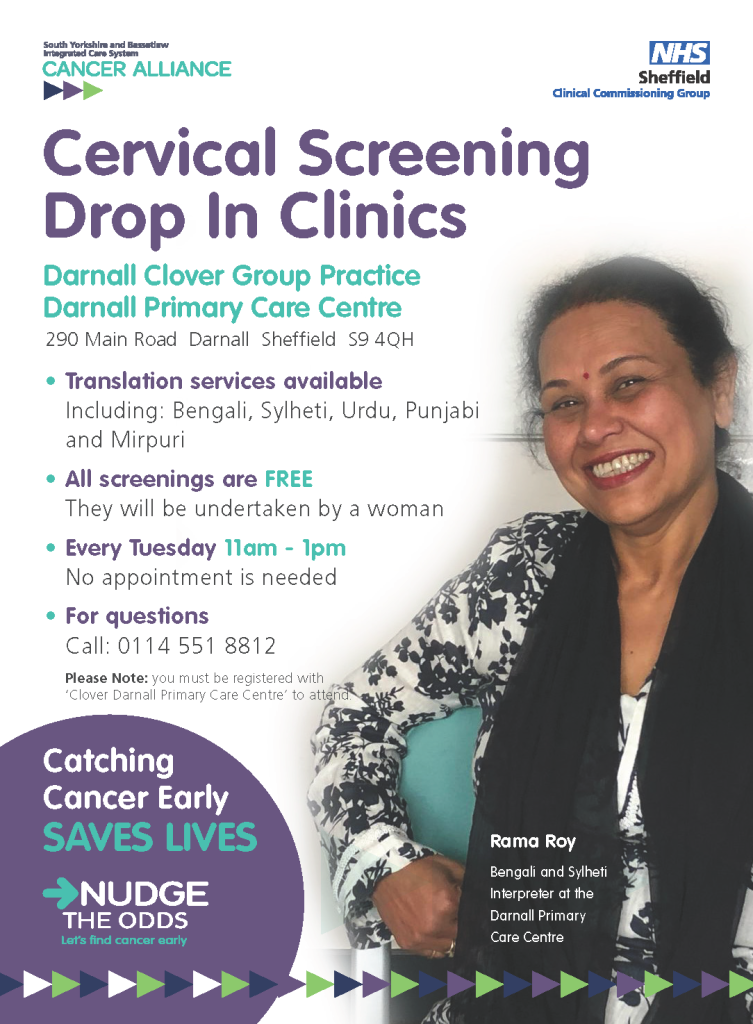
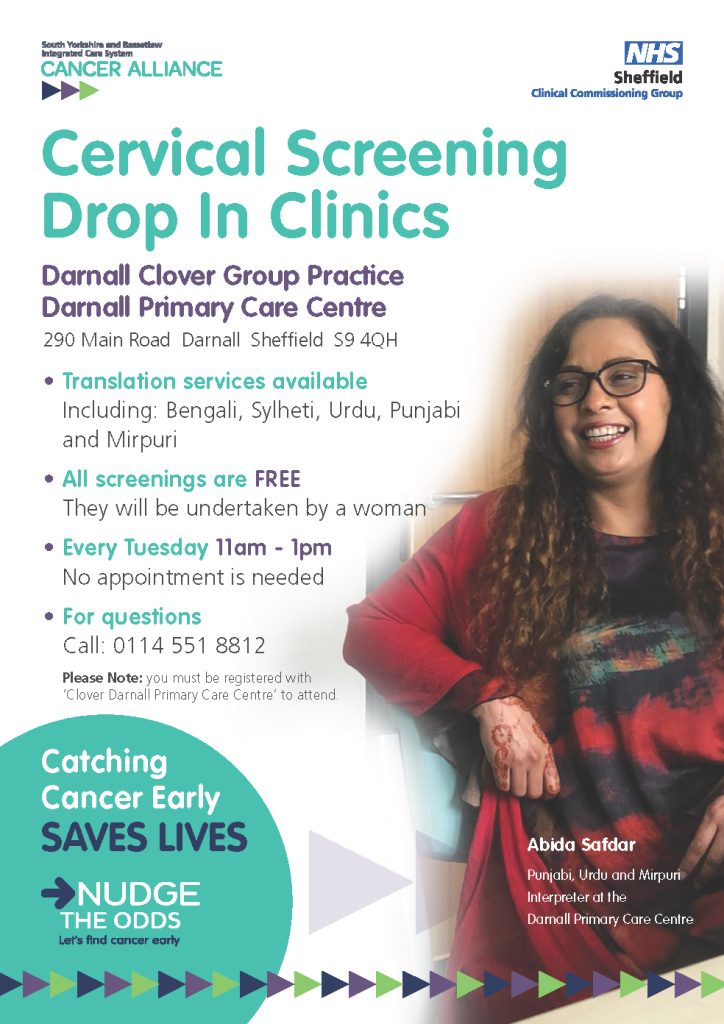
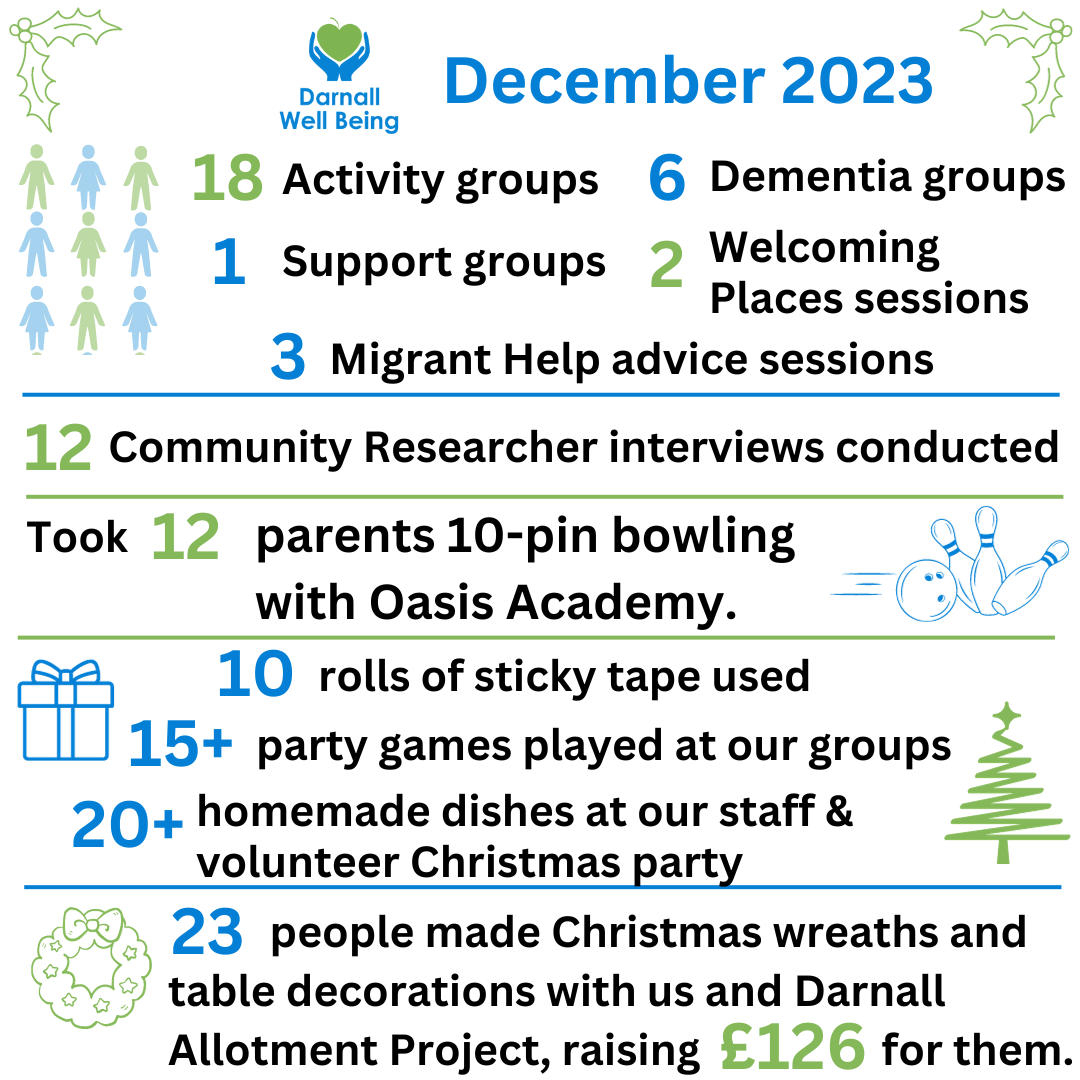
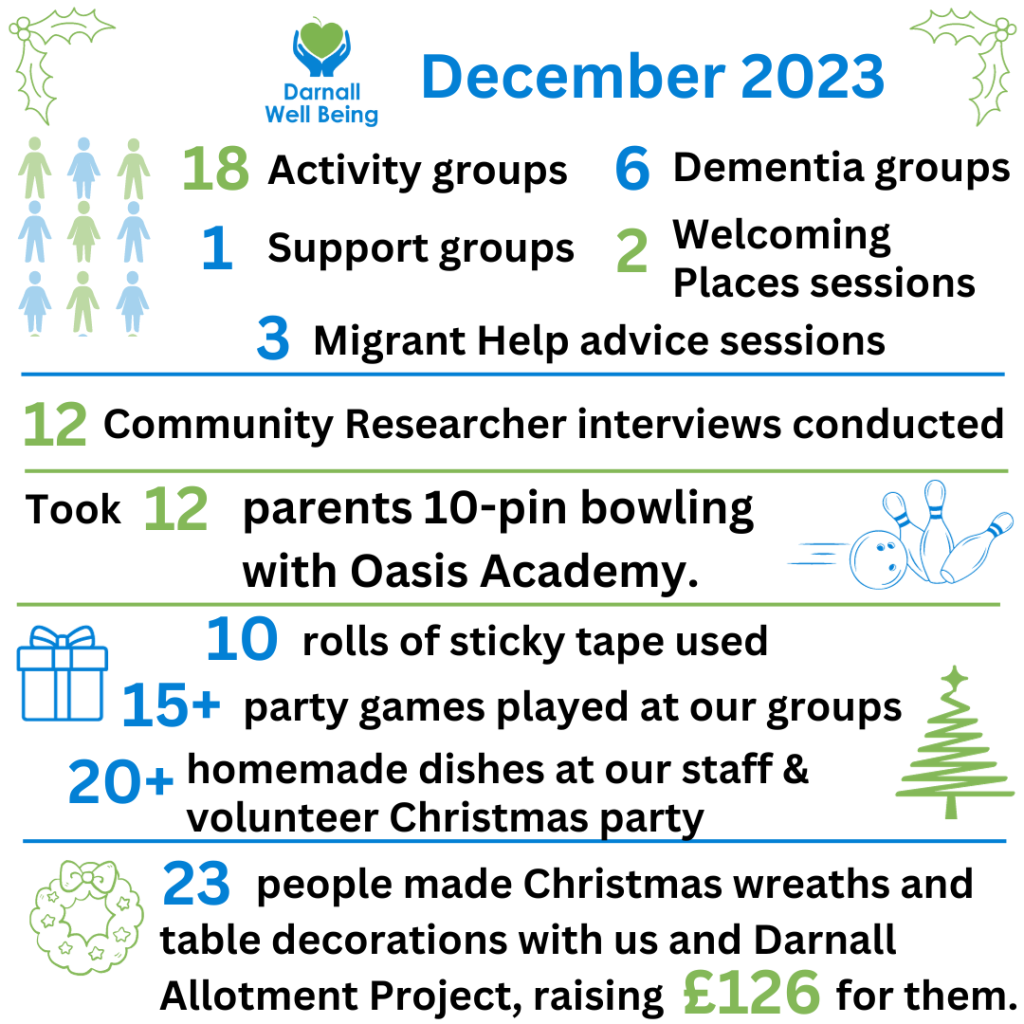
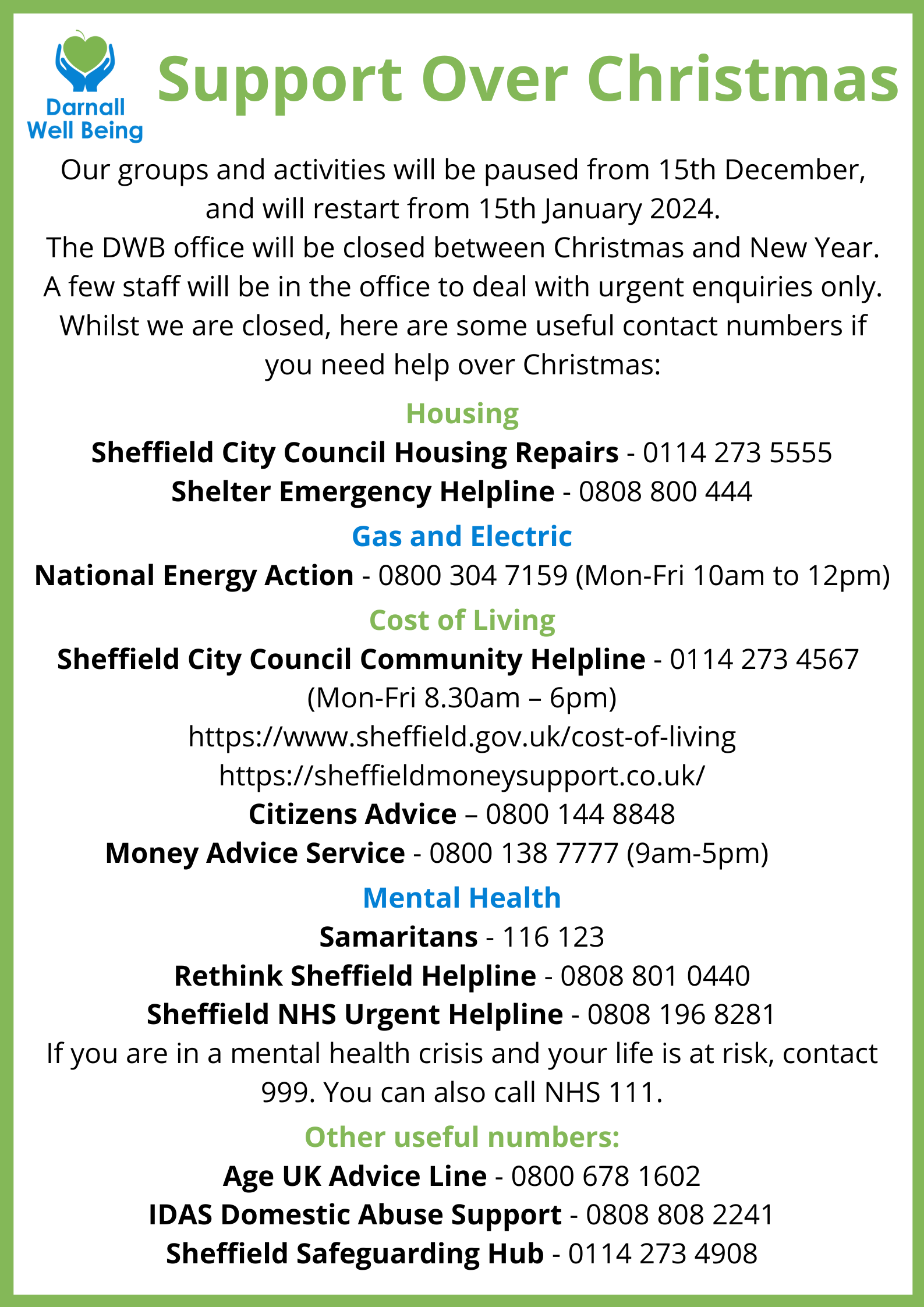
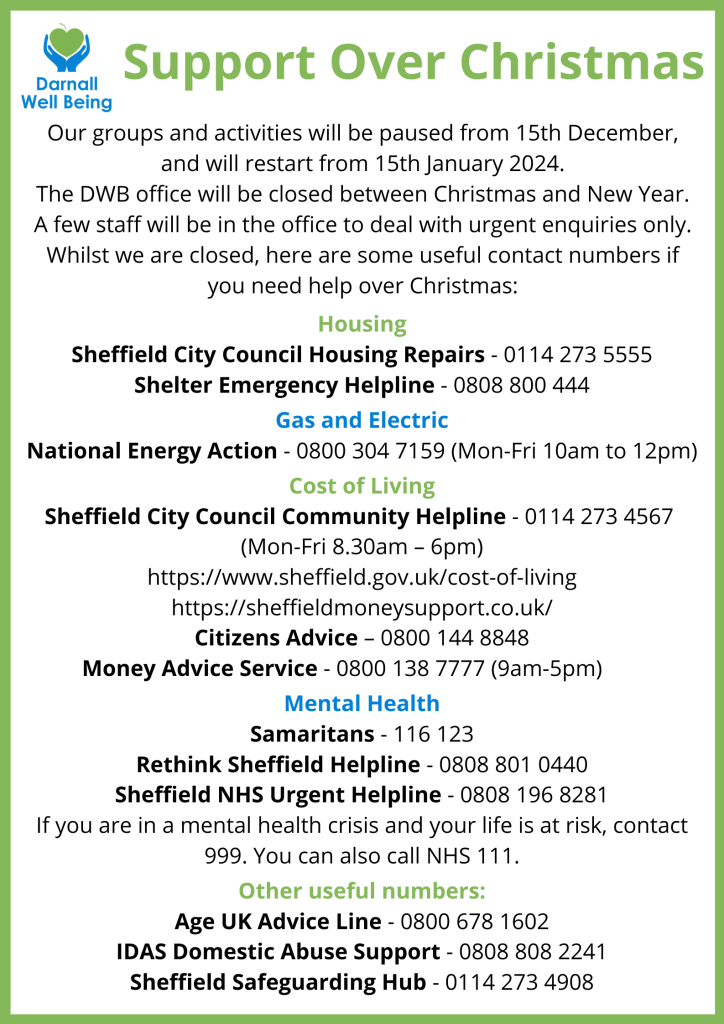
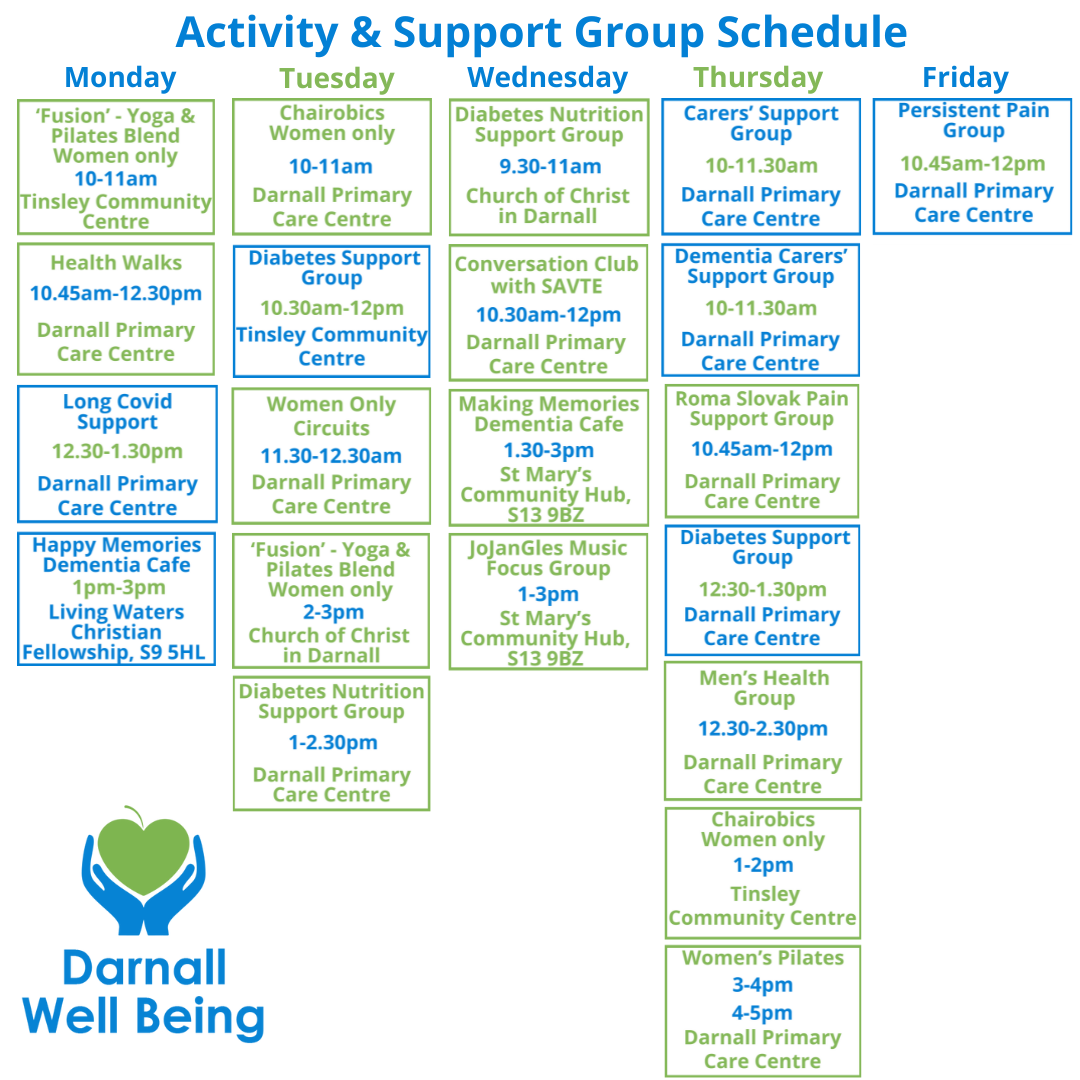
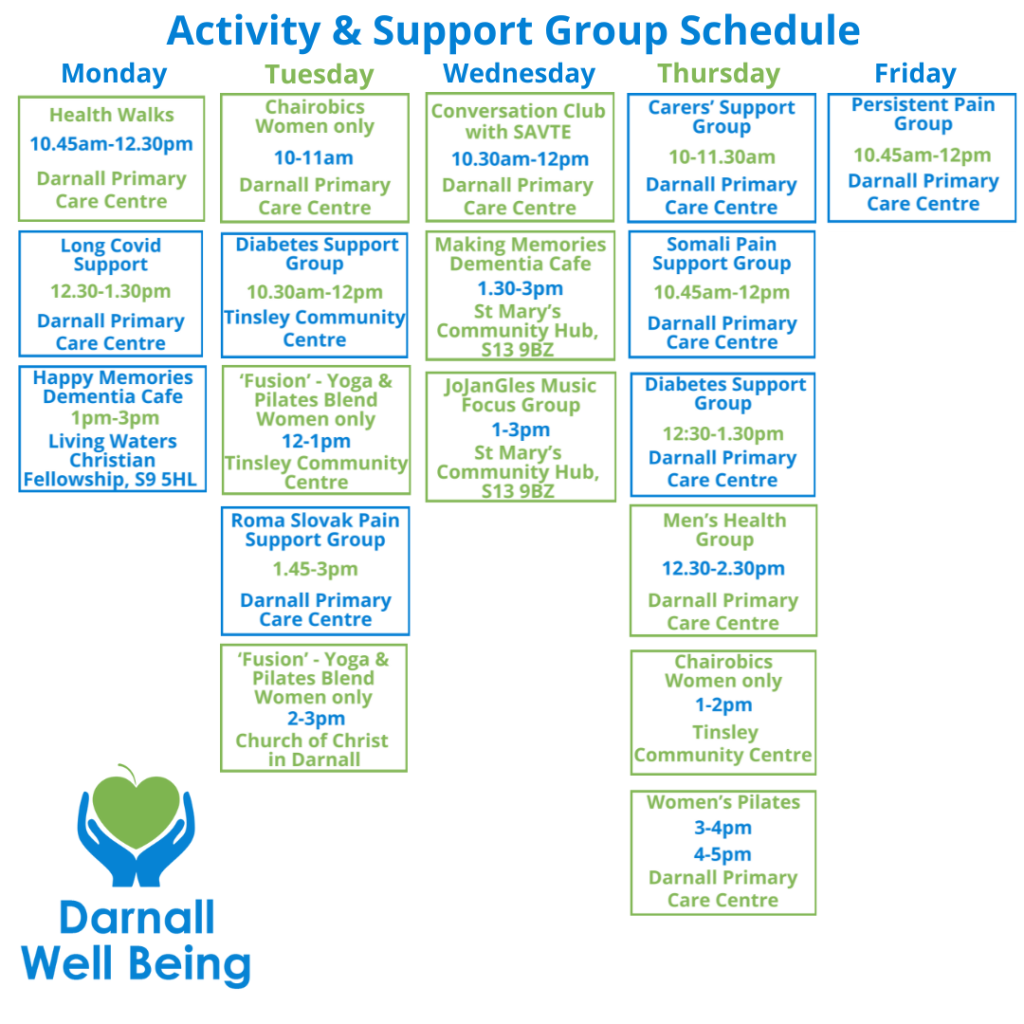
Our activity and support groups offer something for everyone. If you haven’t been before, why not do something new and give one of our friendly groups a try? Just give us a call or email us and we can book you onto any of the sessions. No need to commit to a block of sessions – just give one a try and see how you find it, whether that’s online or in person. All are welcoming groups, with a mix of people from around the Darnall and Tinsley area.
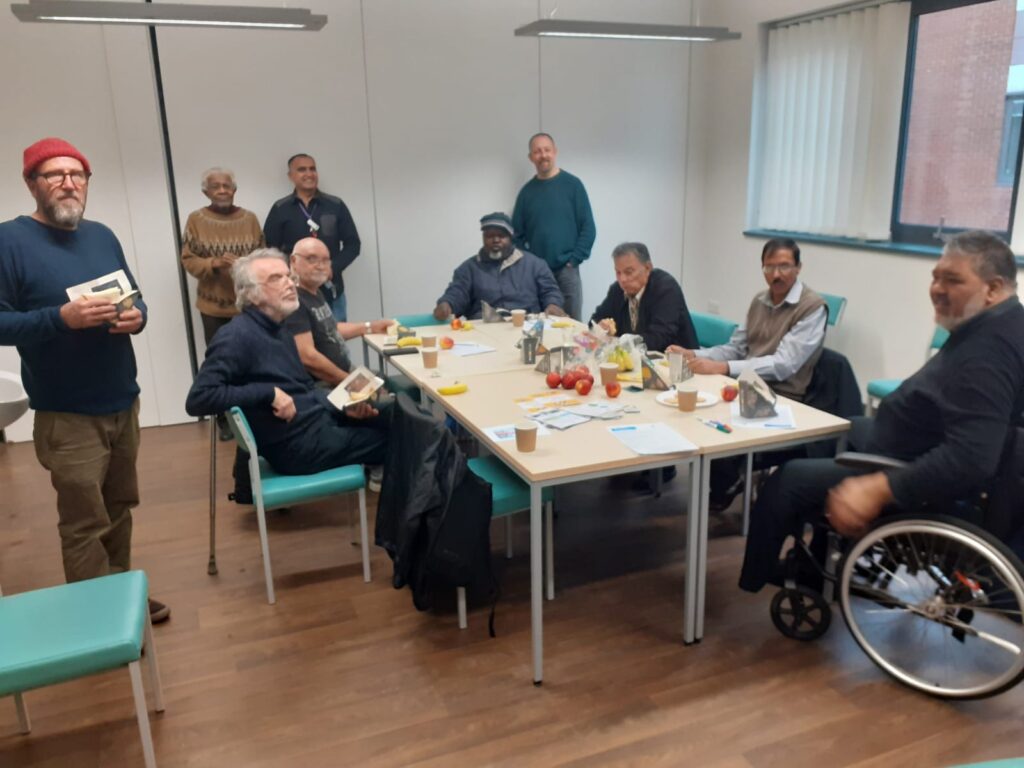
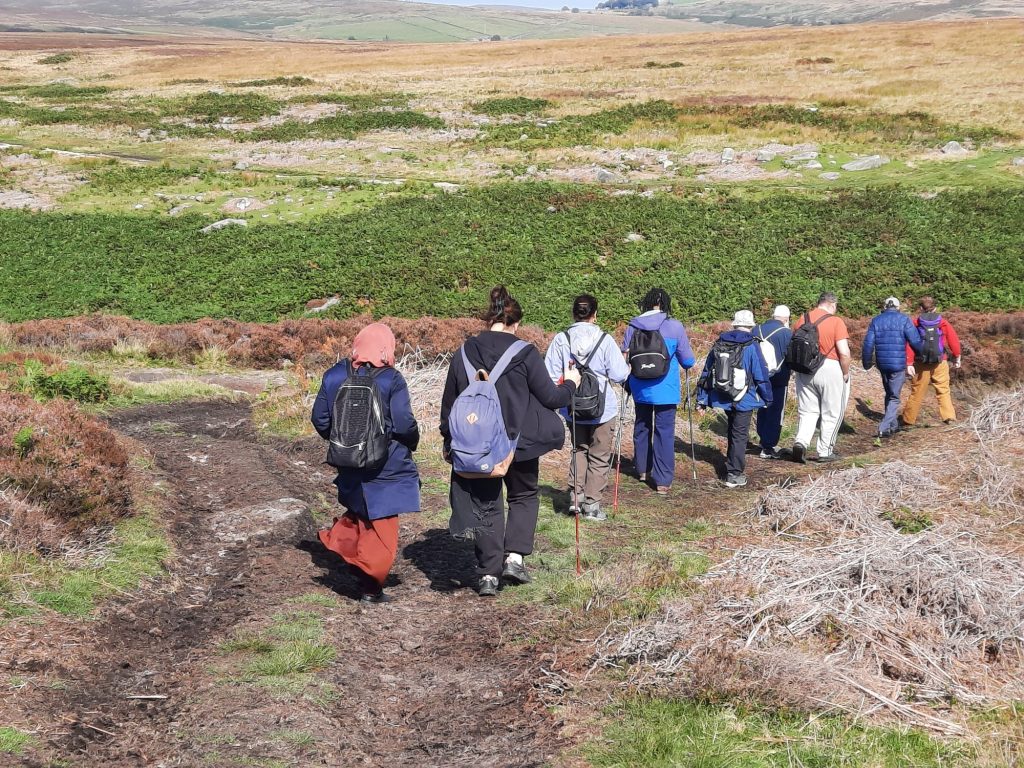
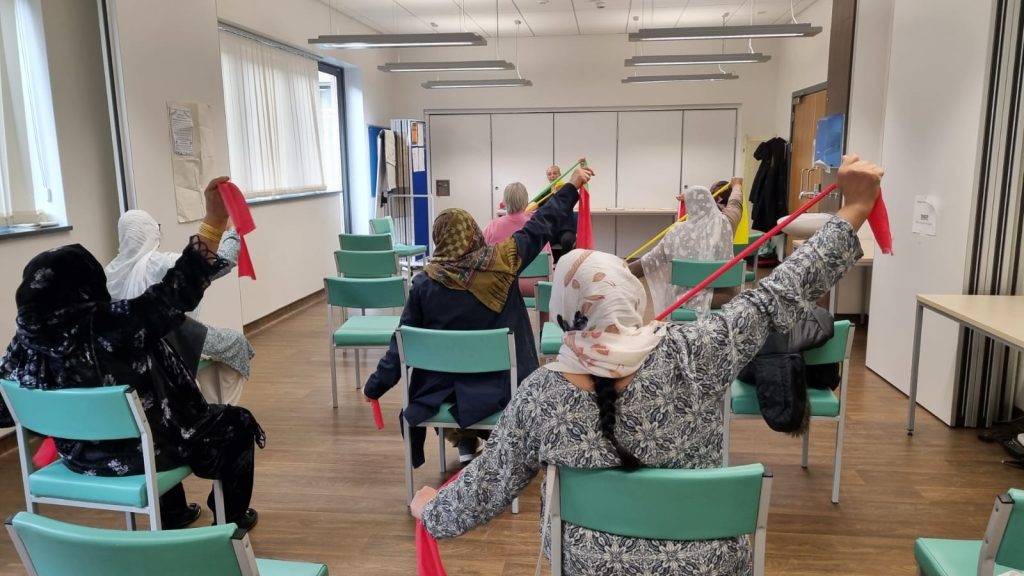
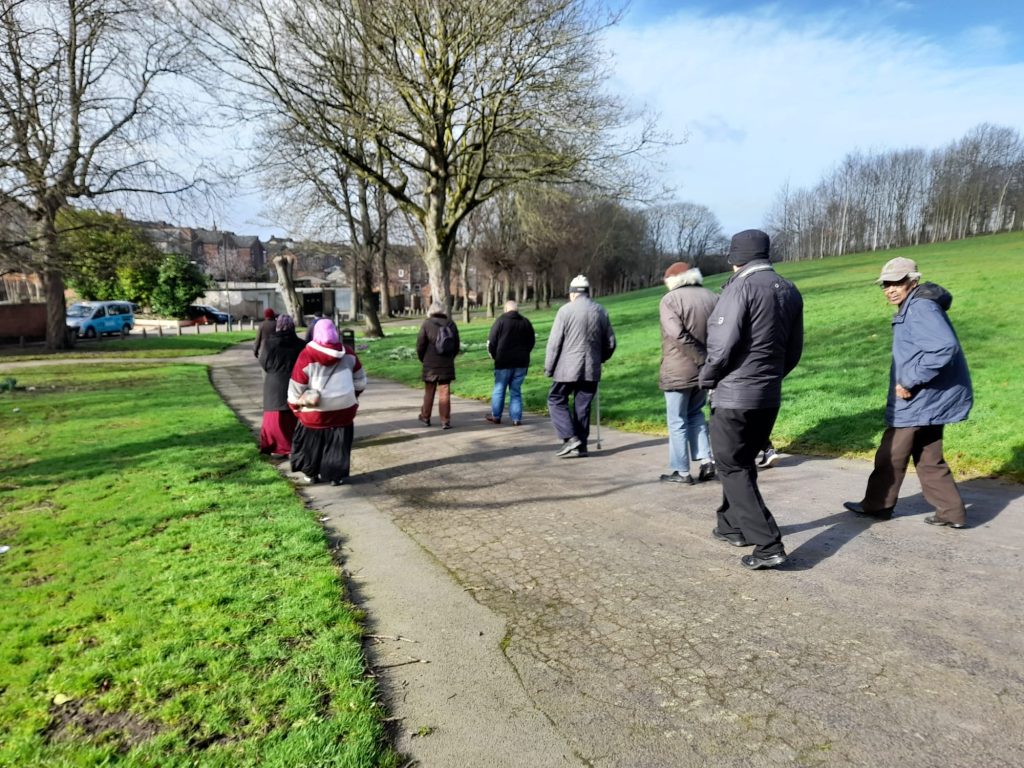
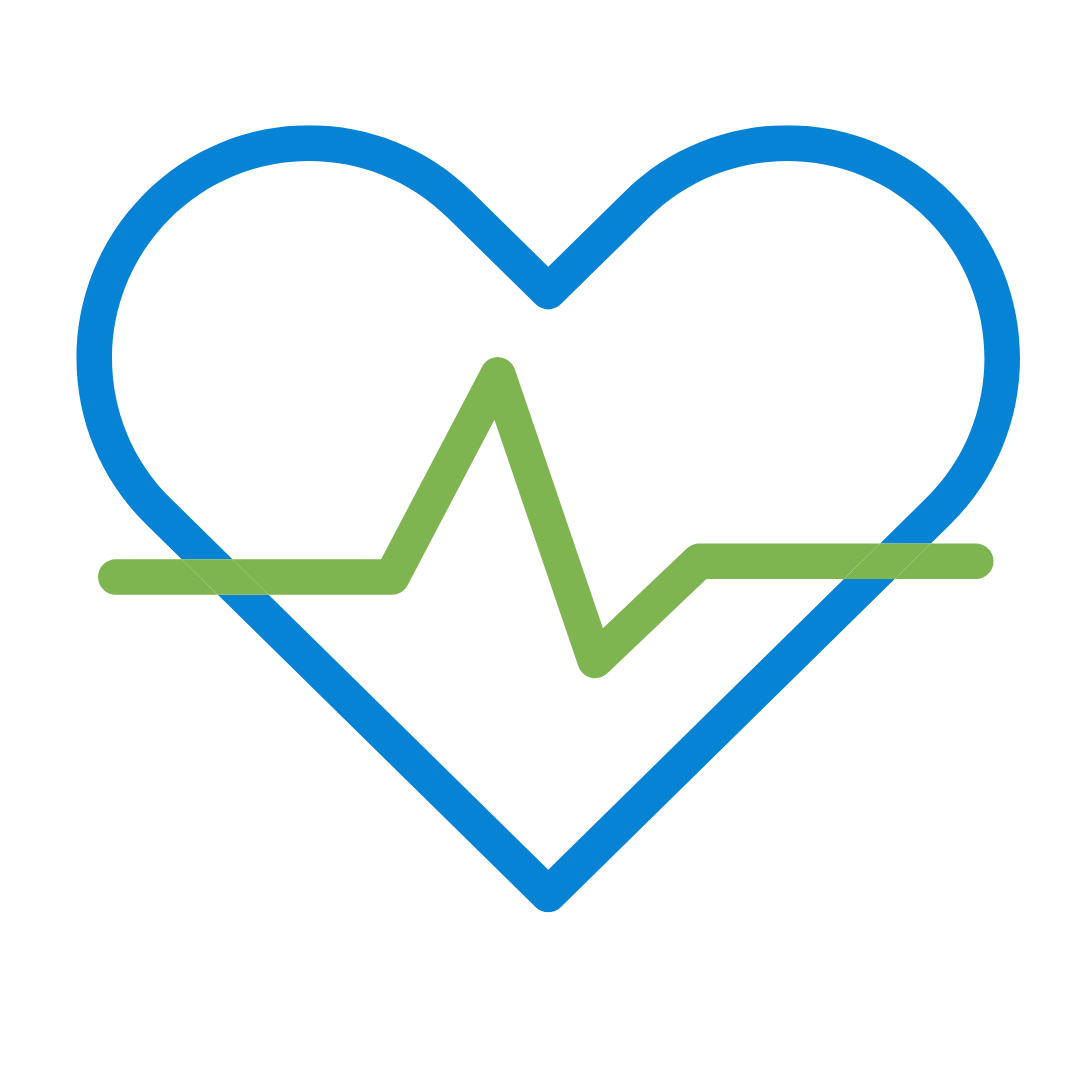

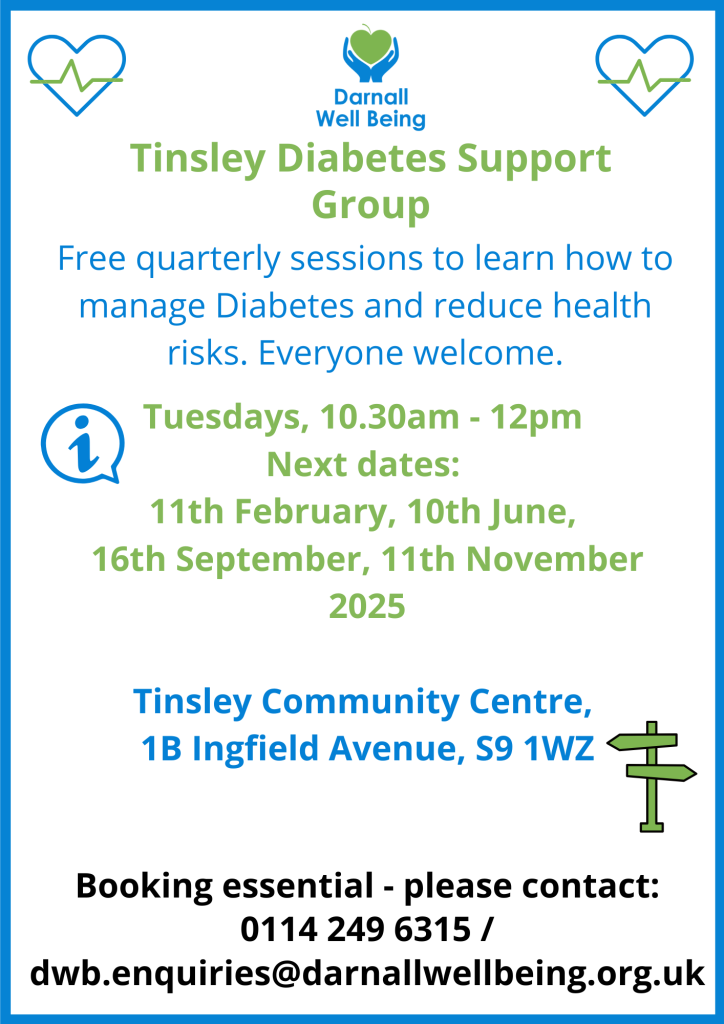
Each meeting, the groups look at a different topic and provide support and encouragement to each other. Recent subjects have included:
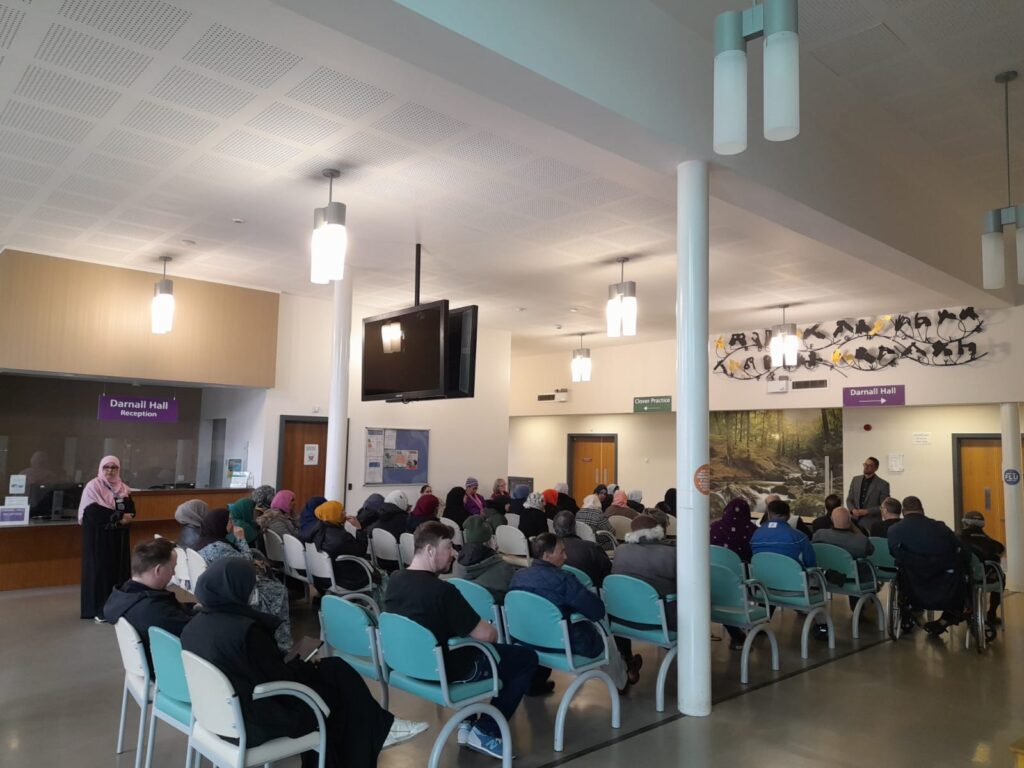
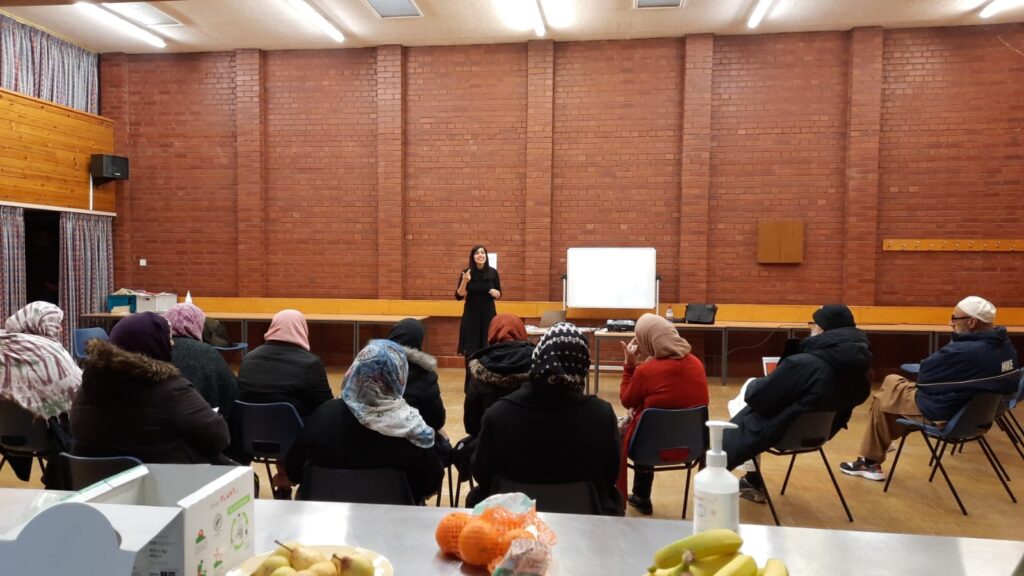
“In the diabetes group I’ve learnt about caring for my feet, about diabetes in general and about sugars in food from a dietician. I’ve also been on a Desmond Course which I wouldn’t have been to.
Diabetes Group participant
The diabetes Group has opened my eyes that you have to take care of your medication and yourself. I wasn’t taking my statins before going to the diabetes group but now I understand better that it is important to take my medication consistently. I’ve learnt to have a healthy balance of food and to only have certain things in moderation. I take much better care of myself.”
When we asked people who come to our Diabetes Support Groups what they have gained by coming along, these were some of their responses:
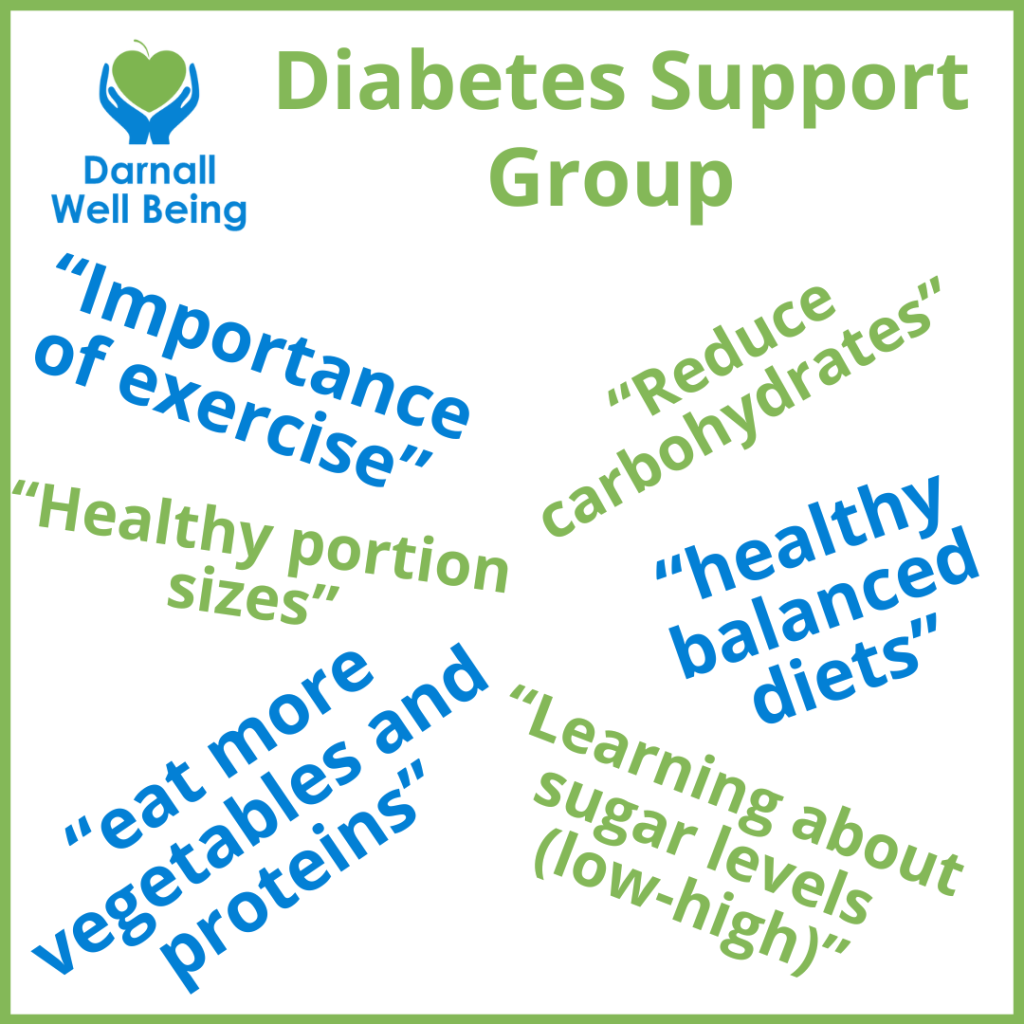
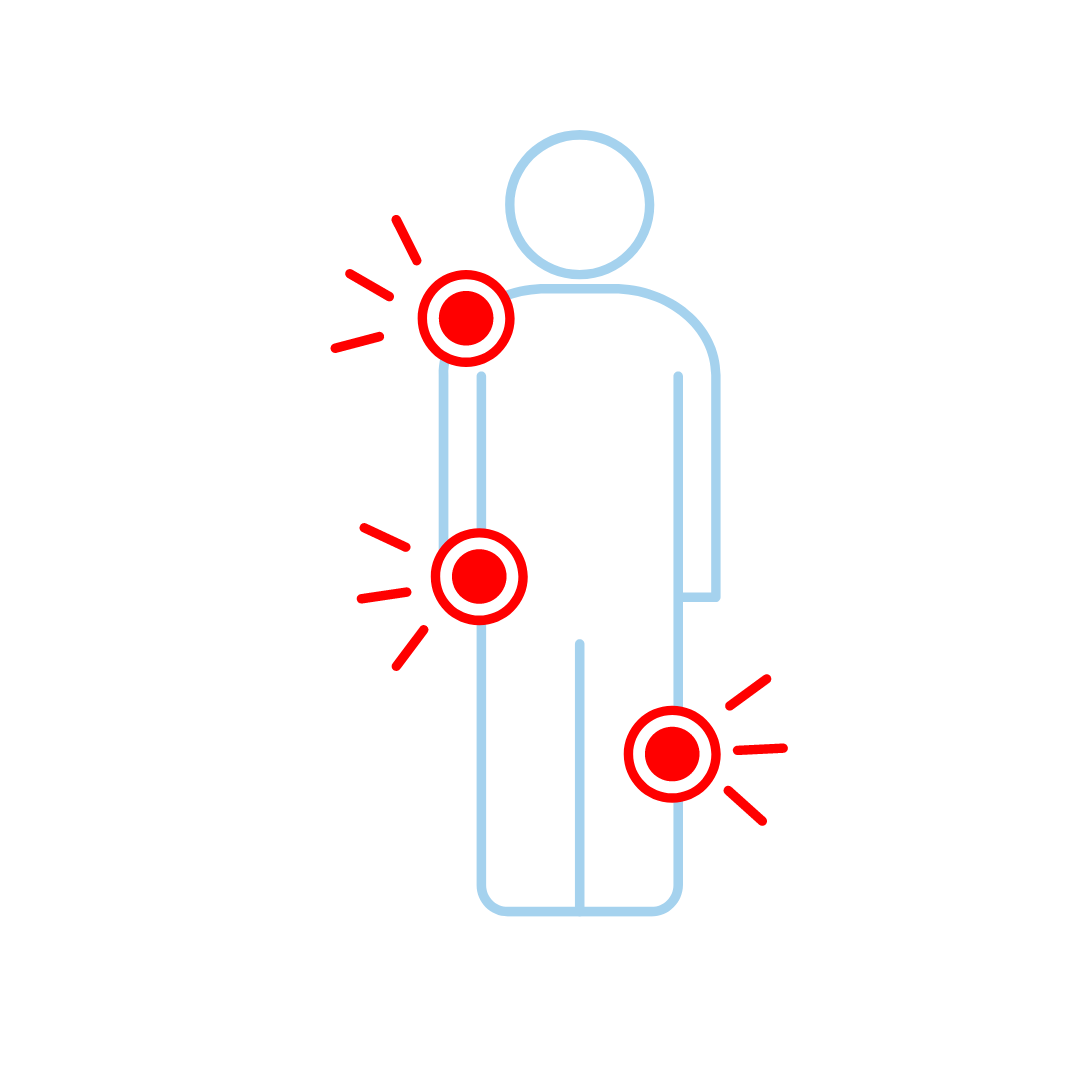
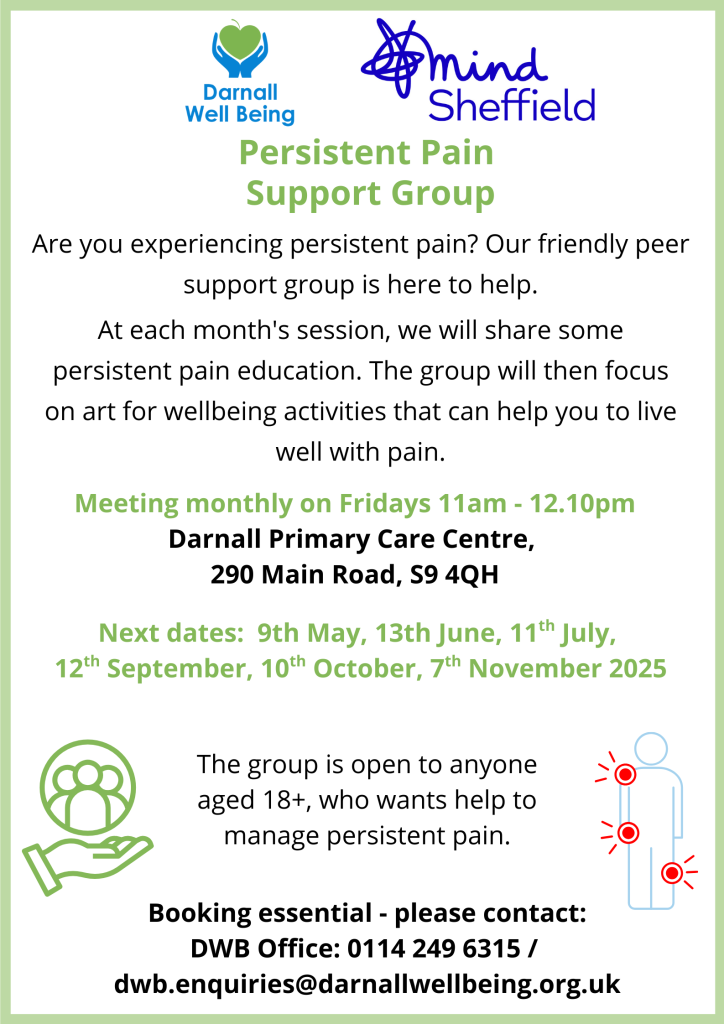
Our friendly group can provide support, advice and ideas for managing pain. Recent topics have included:
In 2025, we collaborated with Sheffield Mind to offer art for wellbeing sessions as part of the Persistent Pain Group. Each month, we were joined by a member of the Sheffield Mind team, who will support the group to participate in art activities to help them live well with pain and manage their mental wellbeing.
The group sometimes has guest speakers to cover relevant topics, such as Manasi Peters, the Physiotherapy Supervisor at the local Primary Care Network.
Some recent feedback from group attendees:
I learned to pace myself – from the toolkit of pain.
I learned to take breaks more often.
I really enjoyed the session and got helpful information.
We also now run 2 Persistent Pain Support Groups with language support for specific groups of people:
